







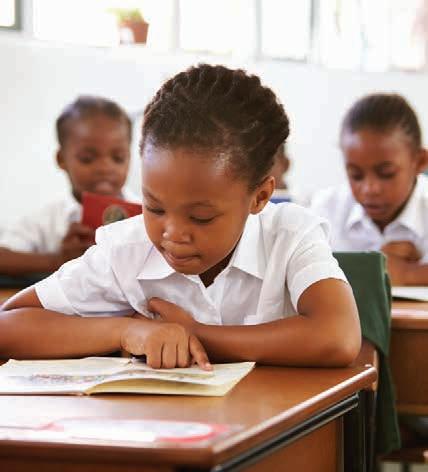
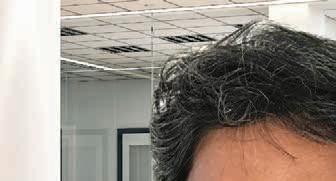
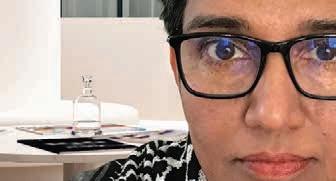

















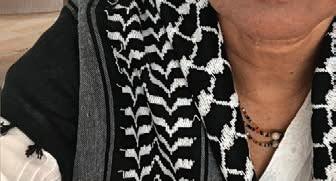
ARE
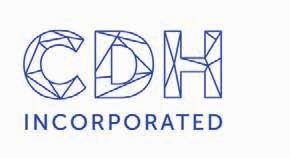































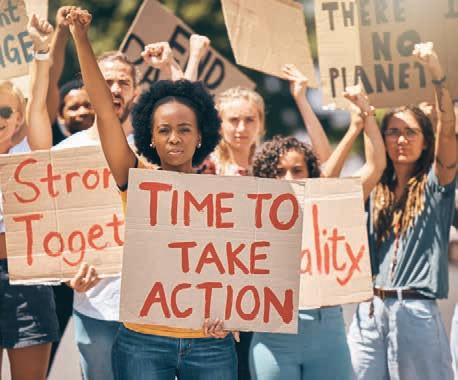


















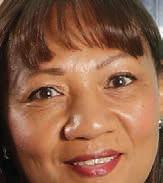































WE CREATING A BETTER FUTURE FOR ALL
or has inequality deepened?



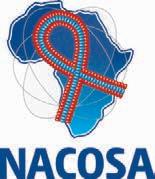 Pregs Govender
Precious Setati
Amonge Sinxto
Pregs Govender
Precious Setati
Amonge Sinxto
Engelbrecht 21 March 2024 www.businessmediamags.co.za
Bertina
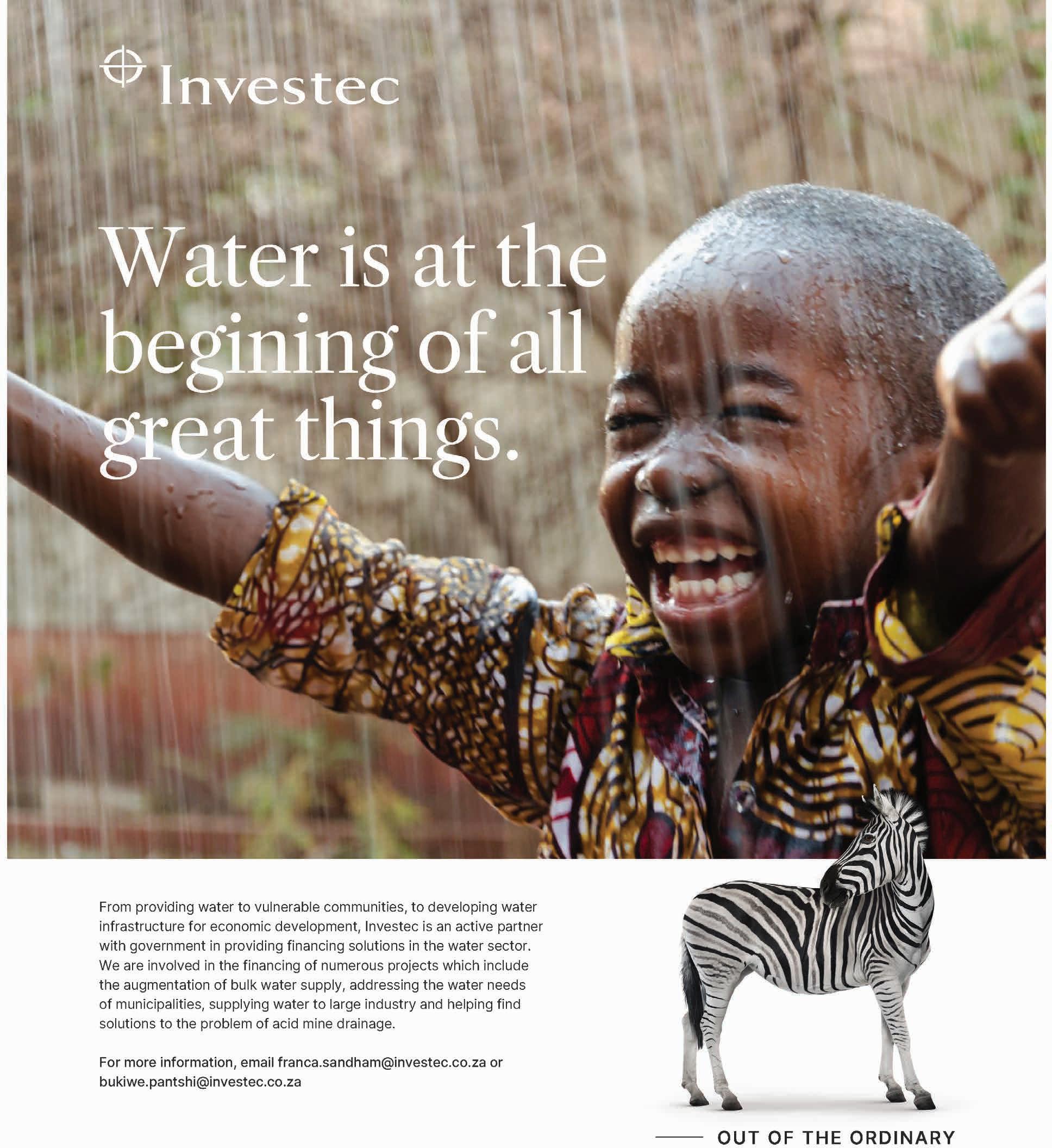


PUBLISHED BY Picasso Headline,
A proud division of Arena Holdings (Pty) Ltd, Hill on Empire, 16 Empire Road (cnr Hillside Road), Parktown, Johannesburg, 2193
PO Box 12500, Mill Street, Cape Town, 8010 www.businessmediamags.co.za
EDITORIAL
Editor: Ryland Fisher
Content Manager: Raina Julies | rainaj@picasso.co.za
Contributors: Nokuthula Daweti, Bertina Engelbrecht, Pregs Govender, Busani Moyo, Charmain Naidoo, Thando Phato, Sanele Ka Ntshingana, Moepeng Talane, Timothy Thomas
Copy Editor: Brenda Bryden
Content Co-ordinator: Natasha Maneveldt
Digital Editor: Stacey Visser vissers@businessmediamags.co.za
DESIGN
Head of Design: Jayne Macé-Ferguson
Senior Designer: Mfundo Archie Ndzo
Designer: Bulelwa Sotashe
Cover Images: istock.com/ monkeybusinessimages, istock.com/ Jacob Wackerhausen, Supplied
SALES
Project Manager: Jerome van der Merwe jeromem@picasso.co.za | +27 21 469 2485 +27 820 668 1496
Sales: Natasha Hendricks, Frank Simons
PRODUCTION
Production Editor: Shamiela Brenner
Advertising Co-ordinator: Johan Labuschagne
Subscriptions and Distribution: Fatima Dramat fatimad@picasso.co.za
Printer: CTP Printers, Cape Town MANAGEMENT
Management Accountant: Deidre Musha
Business Manager: Lodewyk van der Walt
General Manager, Magazines: Jocelyne Bayer



DEMOCRACY IS ABOUT HUMAN RIGHTS
South Africa celebrates the 30 th anniversary of the country becoming a democracy following our first democratic election on 27 April 1994. As the parties vie for your vote over the next few months before our seventh election later this year, the focus will be on how many houses were built, how many jobs have been created and how to keep the country’s lights on continuously and without regular interruptions.
Not many political parties will focus on or even talk about human rights and social justice. Yet, the lack of service delivery – whether in the form of too few jobs, too few houses built or entire towns without water – is, at its heart, about human rights and social justice.
Governments fail to deliver to their citizens, particularly the most vulnerable, when they fail to see how their failure will impact people’s human rights. It becomes a violation of social justice when you don’t create enough jobs or expect the majority of your people to live in a country where unemployment, inequality and poverty always take centre stage.
In this publication, we look at the challenges posed by human rights for human rights organisations, but we also look at related issues, such as the government’s failed bid to create jobs, the environment, gender parity, race and racism and the impact of corruption on our society. We look at the state of our healthcare system and the efforts of a small group to impact on literacy.
We hope you enjoy the read.
Editor
Ryland Fisher
Contents
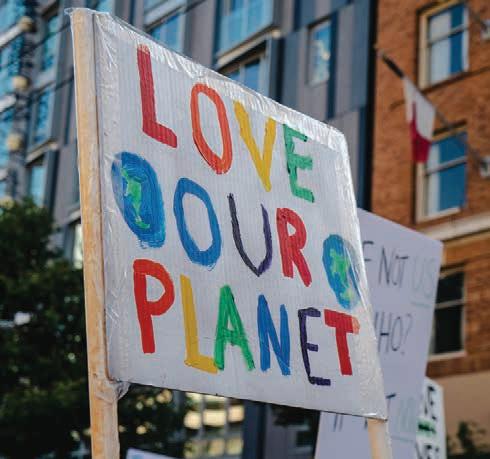

5 OUR ECONOMY NEEDS TO BE TRANSFORMED
6 RACE RELATIONS
9 UNEMPLOYMENT
Regrettably, very little, insofar as government’s job creation goals go, has been achieved.
10 GENDER PARITY
In 1857, women in New York protested against 16-hour workdays, insufferable working conditions and poor pay. Unfortunately, that is still the script for many women in South Africa
15 LITERACY
Rekindling literacy for curiosity and social justice.
16 HEALTH
Why South Africa’s public healthcare system is failing.
19 CLIMATE CHANGE
The top three concerns for South Africans around climate change; EEPAN’s collaborative partnerships for a cleaner community.
20 CORRUPTION WATCH
South Africa’s fi ght against corruption is going nowhere.


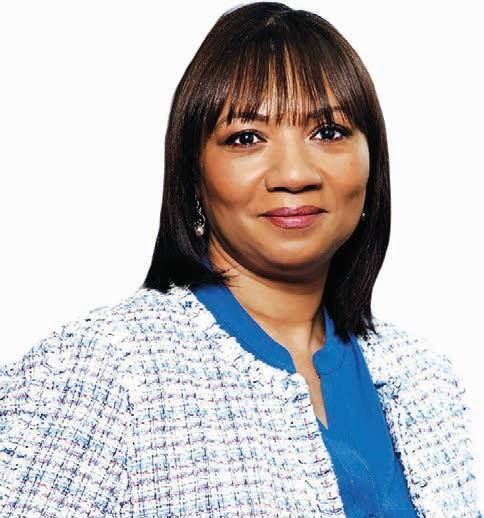

EDITORIAL COMMENTARY Images: Supplied HUMAN RIGHTS 1
COPYRIGHT: Picasso Headline. No portion of this magazine may be reproduced in any form without written consent of the publisher. The publisher is not responsible for unsolicited material. HUMAN RIGHTS is published by Picasso Headline. The opinions expressed are not necessarily those of Picasso Headline. All advertisements/advertorials have been paid for and therefore do not carry any endorsement by the publisher.
A deepened inequality still pervades.
rainbow nation really exist?
Does the notion of a
19
READ MORE WHY SOCIAL IMPACT MATTERS 10
DEDICATED TO MAKING AN IMPACT YEAR-ROUND
As one of South Africa’s leading law firms, Cliffe Dekker Hofmeyr appreciates the impact it can make in promoting access to justice and protecting basic human rights. This article highlights some of the work of the Pro Bono & Human Rights Practice. By JACQUIE CASSETTE , director and practice head, BRIGITTA MANGELE , director in the practice, ELGENE ROOS and GIFT XABA , senior associates in the practice
Cliffe Dekker Hofmeyr’s small but mighty Pro Bono & Human Rights Practice specialises in impact litigation that cuts across several areas of law and public interest with the potential to impact countless individuals and communities by upholding, developing and protecting their basic human rights.
THE RIGHT TO CITIZENSHIP –THE MISSING PERSONS
What do you do when the country you were born and lived in all your life refuses to accept you as their own? You fight and never give up. This is the tale of many of our clients who have and are still fighting relentlessly to ensure the realisation of their rights to citizenship. Their ability to persevere knows no bounds despite facing formidable obstacles along their journey to attain South African citizenship.
Our law is clear on who is entitled to citizenship. Nevertheless, the proper implementation of some provisions of our law –introduced more than a decade ago to extend citizenship to categories of persons born and raised in South Africa – has been hindered by systemic failures by the Department of Home Affairs to put in place appropriate systems to apply for and obtain citizenship. This has resulted in applicants facing numerous barriers when submitting their applications, the most recurrent being prolonged periods before their application is even considered, and then finalised.
The impact of this is that, despite having the right to citizenship, there is a class of persons in South Africa that remains without secure documentation and are “missing” due to the state’s failure to recognise them. It means that they are often unable to pursue tertiary education, contribute to the economy when they have gained an education, or use their skill sets to help a nation struggling with a skills deficit.
Importantly, it also means that there is a class of persons that remains voiceless as they are unable to exercise their civil and political rights, notably their right to vote, and that remain vulnerable even to arrest and detention.
Our practice has recently had several victories in cases litigated to enforce the right to citizenship of affected clients. While citizenship seems ever more contentious – as is reflected by the stance of the Minister of Home Affairs in the recently published White Paper on Citizenship, Immigration, and Refugee Protection – we continue to fight to enforce the rights of our clients. We are committed to furthering this work not only to build a sustainable South Africa and demand government accountability, but also to ensure that the ”missing” persons find their homes.
OUR PRACTICE HAS RECENTLY HAD SEVERAL VICTORIES IN CASES LITIGATED TO ENFORCE THE RIGHT TO CITIZENSHIP OF AFFECTED CLIENTS.


 Elgene Roos
Elgene Roos



ASSISTANCE TO FUTURE SOUTH AFRICAN LEADERS
We have one of the most unequal school systems in the world. On one hand, there are functional, well-managed and funded schools. On the other –making up the lion’s share – there are inadequately funded and struggling schools. Left unaddressed, this has the potential to affect and compromise our children’s futures in unimaginable ways.
Recent research shows that more than 80 per cent of South Africa’s Grade 4 pupils –on average 9 or 10 years old – cannot read for meaning. This means they can’t answer basic questions or draw inferences from a text they’re reading. This worrying statistic emerged from the Progress in International Reading Literacy Study, released by the Basic Education Minister in 2023. This revelation should be a source of great concern for all South Africans.
This is one of the many reasons our practice has, over the years, heightened its role, and indeed constitutional obligation, to assist vulnerable and disadvantaged learners to give effect to their constitutionally enshrined right to quality basic education in terms of section 29 of the Constitution.
Our commitment to uphold the right to basic education is seen in the strategic litigation we drive and the community work we do – work geared towards boosting literacy levels among South Africa’s children, particularly in our townships. Our practice partners with grassroots organisations that do laudable literacy promotion work within their communities with what little they have. Some of these efforts have culminated in our practice launching a legacy initiative, the Build A Library project. Through this project, we contribute towards chipping away at the literacy challenges facing our public schooling system in under-resourced schools and communities.
The South African public schooling system faces dire challenges – many of which are
2 HUMAN RIGHTS
SPOTLIGHT ON CLIFFE DEKKER HOFMEYR’S HUMAN RIGHTS WORK
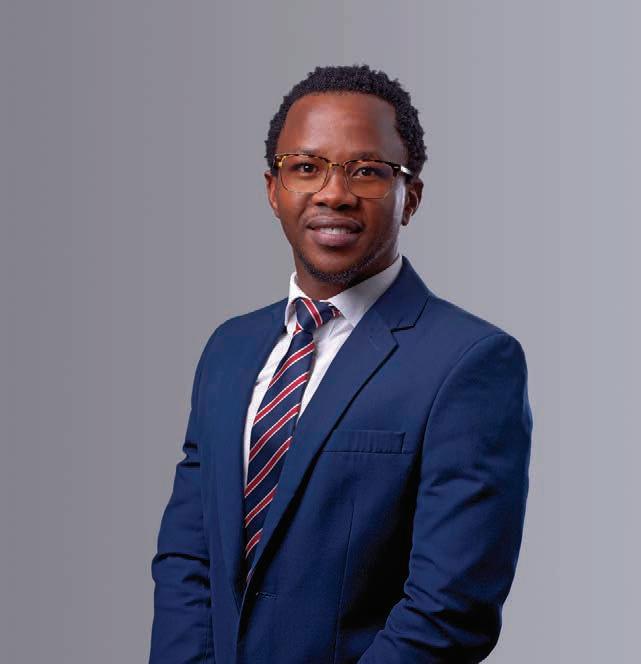
infrastructural. But if we all pull in the same direction and play our part, we might be surprised at just how far we can go in our quest for a prosperous future for all.
A STRUGGLING ECONOMY’S IMPACT ON VULNERABLE WOMEN AND GIRLS

WE ARE ALSO CONCERNED to be ADDRESSING SYSTEMIC ISSUES IN WAYS THAT WILL INCREASE THE PROTECTION OF WOMEN AND GIRL-CHILDREN.
freedom from violence on the other, many South Africans must make devastating choices. Our practice is pursuing cases in which women and young girls have suffered rights abuses, sexual violence and exploitation at the hands of men of means. We explore and pursue damages claims on behalf of our clients to, in the first instance, vindicate their violated rights and bring them a sense of justice. But it is not lost on us that civil damages are one course of action that drives at the heart of the problem: it sends a clear message that financial means and power cannot continue to be used to exploit vulnerable persons struggling in this economic climate, and that the means through which the perpetrators have wielded their violent influence may be the means through which their victims seek justice.
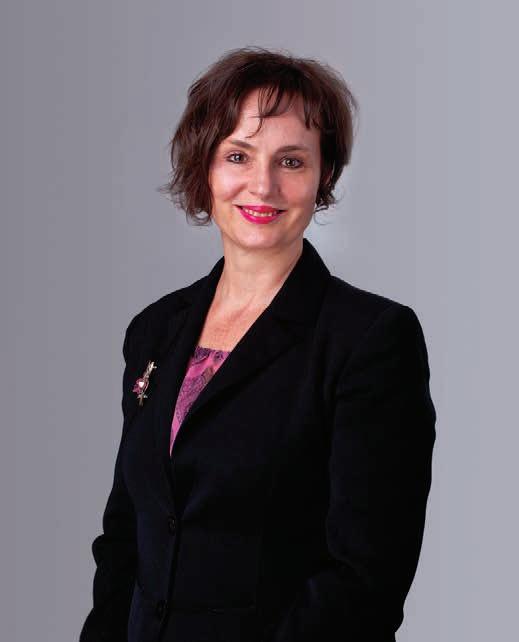
gender-based violence and engagement with state departments with the intention of developing clearer protocols to protect children from abuse. We see the protection of gender rights and the fight against gender-based violence as both legal and social issues. These issues should concern us all – lawyers, activists and businessmen alike, not just this month, but each day, until we’ve made a meaningful change.






No one would dispute that countless pockets of our society are gripped by corruption and fi nancial exploitation. All too often, this exacerbates the circumstances of struggling communities and families, locking them in a cycle of poverty and vulnerability.



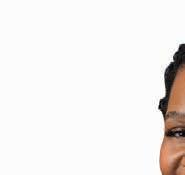



Corruption and state failure to properly manage and protect communities is undoubtedly a severe threat to our economy’s stability and progression. But it is equally threatening to the fabric of our human rights framework. Our practice is seeing more and more evidence that, when faced with the choice between food on the table and a roof overhead on the one hand and bodily integrity, dignity, and
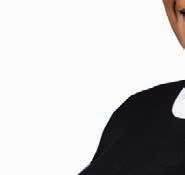



Our Cape Town practice’s core focus is women’s rights and issues. While we are committed to upholding these rights for individuals case-by-case, we are also concerned to be addressing systemic issues in ways that will increase the protection of women and girlchildren. This involves strategic litigation in which the prescription period for gender-based violence survivors to come forward with their civil claims is challenged. It also includes impact litigation in which the Minister of Police is called to pay damages for his vicarious liability for the failure to arrest a known criminal who went on to brutally murder his girlfriend, notwithstanding all necessary evidence being available to effect the arrest.



It also includes strategic partnerships with organisations dedicated to fighting
OUR COMMITMENT TO UPHOLD THE RIGHT TO BASIC EDUCATION IS SEEN IN THE STRATEGIC LITIGATION WE DRIVE AND THE COMMUNITY WORK WE DO – WORK GEARED TOWARDS BOOSTING LITERACY LEVELS AMONG SOUTH AFRICA’S CHILDREN.

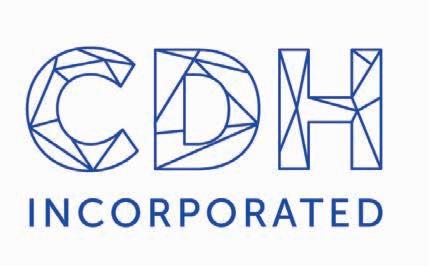
HUMAN RIGHTS 3 Images: Supplied SPOTLIGHT ON CLIFFE DEKKER HOFMEYR’S HUMAN RIGHTS WORK CLIFFEDEKK ER HOFMEYR For more information: +27 (0)11 562 1000 www.cliffedekkerhofmeyr.com Scan to go directly to the Cliffe Dekker Hofmeyr website
Gift Xaba
Jacquie Cassette
FIERCE DEFENDERS OF HUMAN RIGHTS
LLegal Aid South Africa is a human rights stalwart committed to delivering on its mandate of ensuring access to justice to all, writes
PATRICK HUNDERMARK ,
chief legal executive and acting national operations executive
egal Aid South Africa (Legal Aid SA) has been a human rights defender since the dawn of South Africa’s democracy. Since then, along with the amendment of the Legal Aid SA Act in 2014, the organisation’s role is to provide legal aid to those who cannot afford their own legal representation. This includes indigent people and vulnerable groups such as women, children and the rural poor.
It provides legal assistance to accused persons so that their constitutional rights are protected in a fair trial and defends their right to be treated as innocent until proven guilty through a fair hearing in a court. It also ensures that, in civil matters, clients get assistance to have a fair public hearing to settle disputes in court and offers the public a toll-free legal advice service.
STRATEGIC LITIGATION
Over the years, in an effort to do more, the organisation has established a unit that handles and funds precedent-setting matters that promote the rights of communities. The outcomes of matters handled by this Strategic Litigation Unit often impacts the lives of a far larger number of indigent and/or vulnerable persons than the person or persons to whom legal services are rendered to directly. Some of these matters have included supporting the victims of the Ellis Park disaster, the Treatment Action Campaign Constitutional Court case, Silicosis Class Action, and the Life Esidimeni Arbitration Hearings.
Strategic litigation services are performed by either the Strategic Litigation Unit or by local offices of Legal Aid SA. The entity also funds strategic litigation by other legal firms, legal nongovernmental organisations or law clinics. These constitutional or social justice matters
have far-reaching implications for the recognition and defence of human rights in South Africa.
ENSURING LAND JUSTICE
More recently, Legal Aid SA established a Land Rights Management Unit. This unit extends our constitutional mandate to provide land justice services that includes legal representation, mediation and legal advice to rural farm occupiers, labour tenants and land restitution claimants in South Africa. Our clients face unlawful eviction and land rights violations and struggle with finalising their land claims. These struggles impact their dignity and see their basic human rights – to adequate housing, food and water – trampled upon.
OUTSTANDING PERFORMANCE AND OUTCOMES
Legal Aid SA continues to deliver on its mandate of ensuring access to justice for all, with our latest highlights including achieving 97 per cent of our Business Plan objectives and attaining a clean audit outcome for the 15th successive year and our 22 consecutive unqualified audit opinion from the Auditor-General South Africa, both in the 2022/2023 financial year. In January 2024, we received Top Employer South Africa accreditation for the 15 successive year.









322 337 (87 per cent) new criminal matters, 48 805 (13 per cent) new civil matters and 326 new land matters.
General legal advice was provided to 209 962 persons through Legal Aid SA offices and the Advice Line, as well as to remand detainees at correctional facilities.These figures are more than performance highlights. They speak of humans who have had the Constitution and, particularly, the country’s Bill of Rights, work for them. The promises enshrined in our guiding legislation have come to fruition for 581 430 people who had their human rights defended, upheld and explained to them.
Legal Aid SA constantly strives to be a model public entity that prides itself on being defenders of human rights and good stewards of the funds it receives from the South African taxpayer.












THE PROMISES ENSHRINED IN OUR GUIDING LEGISLATION HAVE COME TO FRUITION FOR 581 430 PEOPLE WHO HAD THEIR HUMAN RIGHTS DEFENDED, UPHELD AND EXPLAINED TO THEM IN 2022-2023.


















Legal services were provided to 581 430 indigent and vulnerable people in the 2022/2023 financial year, comprising












































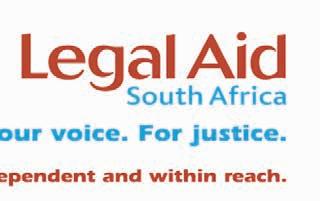
4 HUMAN RIGHTS ADVERTORIAL LEGAL AID SOUTH AFRICA Images: Supplied
LEGALAID SOUTHAFRICA For more information: Call the toll-free Legal Aid Advice Line 0800 110 110 www.legal-aid.co.za Scan to go to the Legal Aid South Africa website
Patrick Hundermark
A DEEPENED INEQUALITY STILL PERVADES
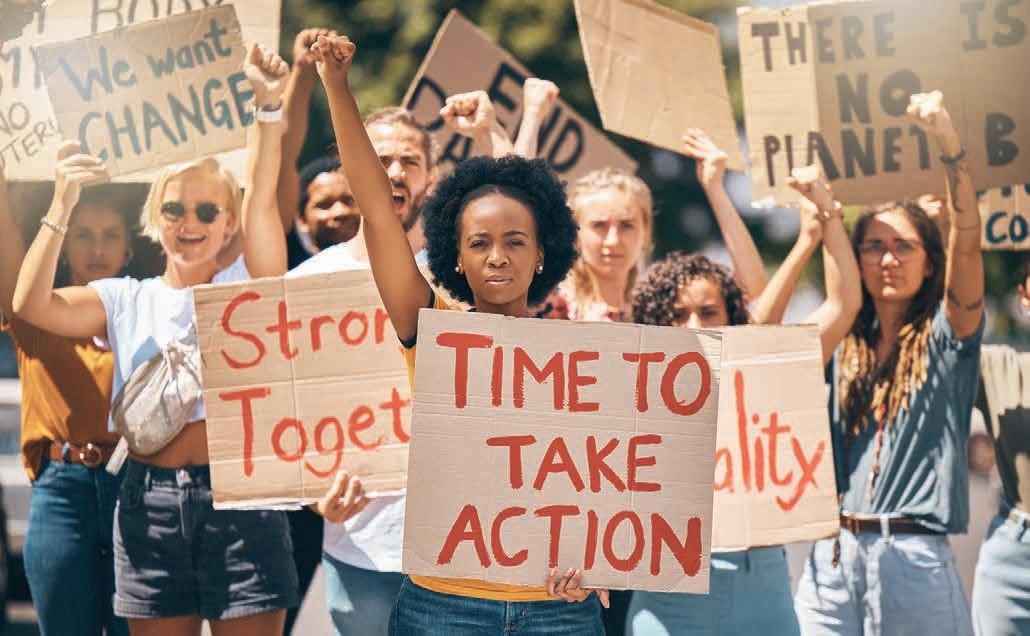
PREGS GOVENDER, a former Member of Parliament and SA Human Rights commissioner and deputy chair, shares that the current international order perpetuates poverty, violence and the lack of human rights
South Africa’s democracy recognises that dignity is our individual and collective birthright. It asserts human rights against colonial and apartheid dispossession and military, economic, political and ideological wars of dehumanisation. Apartheid’s murder of civilians, including children, at Sharpeville, was committed by people trained to erase the humanity of colonised people.
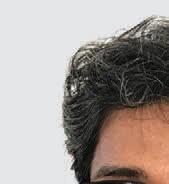
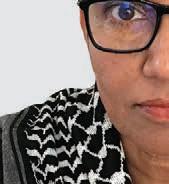
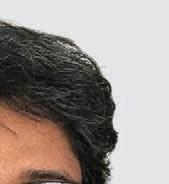
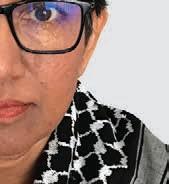
From 1994 to 2024, the largest number of women who benefitted from South Africa’s affirmative action laws (aimed at transforming corporate boardrooms) are white women.
EXPLOITATION, CORPORATE LOBBYING AND WARMONGERING
The values that drive these institutions remain largely unchanged. The leadership of most local and global corporations is driven by the imperative of maximum profits for a few. South Africa’s democracy ensured legal protection for worker rights and regulation to protect the environment yet many local and global corporations have veered away from secure employment to increasingly precarious work that has drastically increased the numbers of “the working poor”. Wealthy agribusiness and extractive industries drive climate change, exploiting and polluting the earth, using valuable resources, such as water, at far less cost per kilolitre than households pay. When those with economic power undermine human rights, they must be held to account in the same way we hold both the corrupt and the corrupted accountable.

South Africa’s first democracy established a human rights framework, including a Constitution with a Bill of Rights. Yet most children who are black, working class and poor still struggle to access basic rights, including secure homes, safe streets and transport. The lack of these rights leads to increased vulnerability to patriarchal violence, suicide and gangsterism.
Pregs Govender
Flourishing societies care for children. Every child’s life is valuable. Society reflects this by ensuring fresh air, clean drinking water, healthy food, secure homes and communities in which to play, learn, enjoy nature, develop capacities and relationships, access public transport, electricity, healthcare, working parents receive parental leave, and social security to enable elders to be compassionately cared for.
Apartheid’s spatial geography and the economic policies that maintain this inequality need urgent transformation. The capitalist, patriarchal and apartheid state created “Bantustans”, townships and informal settlements to ensure cheap labour was kept at a safe distance. Today, white South Africans still own most of the land and wealth. They have been joined by a relatively small number of black South Africans.
WHEN THOSE WITH ECONOMIC POWER UNDERMINE HUMAN RIGHTS, THEY MUST BE HELD TO ACCOUNT IN THE SAME WAY THAT WE HOLD BOTH THE CORRUPT AND THE CORRUPTED ACCOUNTABLE.
In the United States, corporate “lobbying” is corruption by another name. Arms corporations, together with the powerful Zionist lobby, have secured almost unlimited funding for Israel’s war against the Palestinian people, most of whom are children, all labelled “animals”. At the same time, the United States 2022 statistics reveal that 37.9 million people were living in terrible conditions of poverty, which could have been alleviated by the profits accrued by the arms corporations. When most countries voted for a ceasefire, the United States used its veto to block it. South Africa’s government used its power with the International Court of Justice (ICJ) case to try to stop Israel’s genocide of the Palestinian people. Instead of ensuring Israel implements the ICJ’s ruling, former colonising countries suspended funding to UNRWA, ending critical humanitarian aid.
Recognising human rights as universal and interdependent, the Universal Declaration of Human Rights asserts: “Everyone is entitled to a social and international order in which the rights and freedoms set forth in this Declaration can be fully realised.”
Yet the current international order has deepened inequality, poverty, violence and the lack of human rights A war economy, it perpetuates military, economic, political and ideological wars against the world’s children. The people of the world must use whatever individual and collective power we have to protect humanity’s future.
SOUTH AFRICAN HUMAN RIGHTS COUNCIL HUMAN RIGHTS 5 IMAGES: ISTOCK.COM/ JACOB WACKERHAUSEN, SUPPLIED
IS RACE STILL AN ISSUE?
THANDO PATO speaks to three South Africans under the age of 30 to find out if the notion of the “rainbow nation” exists in city life
Race remains an issue in South Africa, 30 years after we rejected apartheid to become a democratic country. Sometimes it is subtle, but it is still there. Johannesburg-based children’s author and founder of nonprofit organisation Black Board Africa Amonge Sinxoto (24) says her experience of the city has largely been one that has been inclusive because of her upbringing. She grew up in the suburbs and went to multiracial schools, but, she says, our history is still evident in Johannesburg.

“Diversity remains an issue in Johannesburg. If you go to the very affluent suburbs in the north and the Parks, as a person of colour, you are more likely to have racially charged interactions because we are still in the minority there. But the issue of race is present throughout the city even if it’s nuanced. I grew up very aware of it,” she says.






Precious Setati (28) spent her childhood in Limpopo, but now lives and works in Centurion. She says that despite South Africa celebrating 30 years of democracy this year, race is still an issue in her day-to-day life.




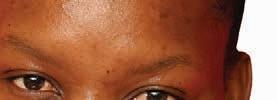

“We have a long way to go in terms of integration. I visit some parts of Johannesburg, Centurion and Pretoria and feel unwelcome because I am black. I haven’t experienced outward aggression or a hate crime, but there is definitely an energy that says: ‘You don’t belong here’.

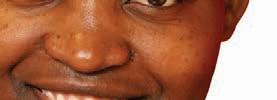



Precious Setati

“There is also a very clear divide in the standard of living, which is racially skewed because almost all the areas with high poverty and crime rates are predominantly populated by people of colour.
The townships, informal settlements – which are shooting up all over the city – and downtown Johannesburg are perfect examples. Where is the integration there?” she says.
A MIXED BAG
Ona Mokoboto (24) grew up in various suburbs in the East Rand and says his experience of the city has generally been one of racial integration.
“In the neighbourhood where I grew up, there were people of all races. It was only when my sister and I moved and went to live in Pretoria North with my aunt in 2021 that I experienced the opposite. There were only three families of colour in our residential complex, which was jarring. I was used to seeing a lot more diversity. And because of that lack of diversity, I felt uncomfortable.”
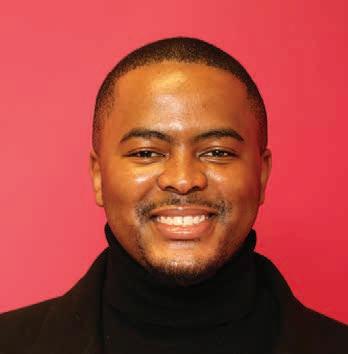
Ona now lives in Midrand, which is jokingly referred to as the “res for adults” on social media because of the number of young professionals living there. The area, which also includes several luxurious and highly sought-after housing estates, is currently experiencing a development boom, with new up-market complexes and shopping centres opening their gates on practically every corner.
“I like it here and my only concern is the crime; you can’t just walk to the shops or take a stroll in the streets. But I guess that is the reality of city life. In my complex, there is a mix of people, and I haven’t experienced any racial tensions yet.”
Ona does concede though that despite his experiences growing up and currently, Johannesburg is still unequal and, in some respects, segregated, with some areas still more accessible to particular races/classes due to affordability.
“I don’t think we will ever get away from that because of our history and how our economy is structured, despite how quickly the city is growing,” he says.







“THERE IS ALSO A VERY CLEAR DIVIDE IN THE STANDARD OF LIVING, WHICH IS RACIALLY SKEWED BECAUSE ALMOST ALL THE AREAS WITH HIGH POVERTY AND CRIME RATES ARE PREDOMINANTLY POPULATED BY PEOPLE OF COLOUR.” – PRECIOUS SETATI


RACE 6 HUMAN RIGHTS IMAGES: METAMORWORKS/NIELENDK, SUPPLIED
Amonge Sinxto
Ona Mokoboto
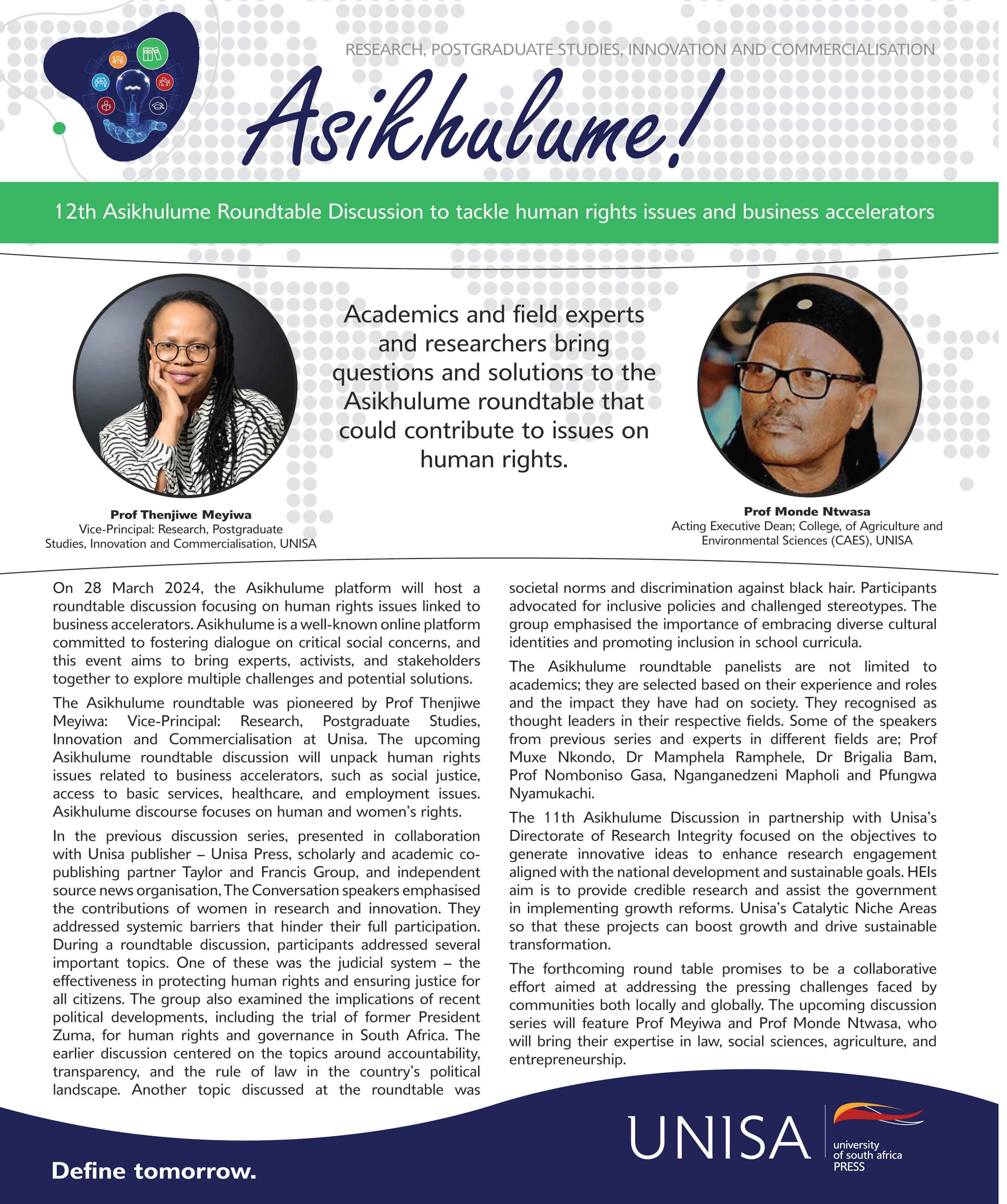

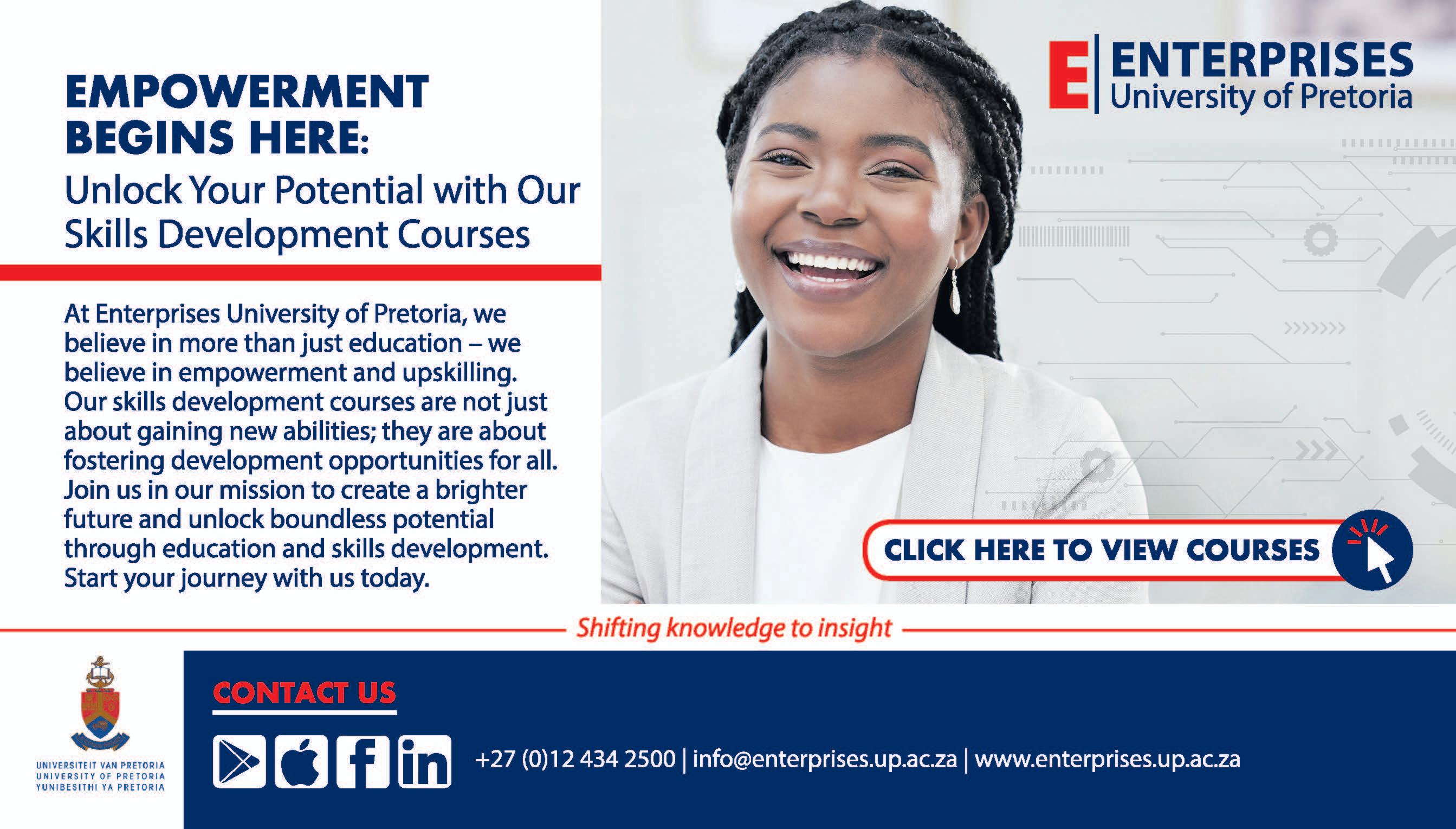
SOUTH AFRICA’S UNEMPLOYMENT CHALLENGES
Against what was promised at the last jobs summit, BUSANI MOYO investigates what has been delivered
Ask any South African to say what happened between 4 and 5 October 2018 and most will look at you with confusion. Amid the usual state fanfare, South Africa hosted its last jobs summit on those two days. At that gathering, President Cyril Ramaphosa promised that, together with social partners, the government would create 27 000 jobs a year.
Notwithstanding the promises, the bureaucratic signatures and the holding of raised hands as the 2018 summit closed, experts say there is little evidence of deliverance on the promises. Since then, South Africa’s unemployment rate has risen by almost six per cent.
For many who remember the lofty promises made at the Jobs Summit, a natural question arises: to what extent have the promises been fulfilled?
NO SHORTAGE OF PROMISES
As the Jobs Summit ended at the National Economic Development and Labour Council, government, labour, business and community constituencies agreed on one thing: an unemployment rate of 26.7 per cent was unacceptable. When they signed a new agreement, these partners were telling South Africans that the problem of high unemployment was being addressed.
Reporting from the summit, Theto Mahlakoana of the Sunday Times quoted Ramaphosa’s message for the sceptics: “This time around, we are determined to implement the various interventions that social partners have come up with … you may say this is just talk‚ it has been thoroughly processed‚ discussed over the past few months and I am satisfied that we have calibrated what needs to be done to embark on the various interventions.”
In his opening speech, Ramaphosa laid down the main components of “what needs to be done”:
•Implement economic reforms to spur growth.
•Support employment creation by reprioritising R50-billion of public spending.
•Establish an infrastructure fund to which the government would contribute R400-billion in the three years following the summit.
•Deal with urgent needs in education and health.
•Invest in municipal social infrastructure improvement.
When the president went to the Jobs Summit, it was clear he knew exactly what the challenges were and how they should be solved. The question, therefore, is, did he live up to his word?

“REGRETTABLY, LITTLE HAS BEEN ACHIEVED INSOFAR AS THE STATED GOAL OF 275 000 NEW JOBS PER ANNUM IS CONCERNED.” – PROFESSOR OWEN SKAE
FAST FACT
In Q2 2023, young people aged 15–24 and 25–34 years have the highest unemployment rates of 60.7 and 39.8 per cent, respectively (Source: Statistics South Africa), and the unemployment rate for black South Africans was 36.8 per cent and 7.4 per cent for white South Africans (Source: Statista.com).
AN AVALANCHE OF INDICTMENTS
In an opinion piece published three days after the 2018 summit, Boitumelo Senokoane, a professor in the Humanities Department at Unisa, described the gathering using the very words Ramaphosa wouldn’t want to hear. He said: “The same government [that] has spent R15-million on such a talk shop also intends to retrench more than 300 000 government employees and privatise state-owned entities, which will also lead to job losses.”
In his scathing article, Senokoane says: “It is my view that the Jobs Summit was a mere electioneering tool by the ANC-led government.” He adds that the promises made are akin to false advertising.
While Senokoane may be accused of speaking too early, Professor Owen Skae, an associate professor and director of Rhodes Business School at Rhodes University, provides a more recent analysis of how much has been achieved. “Regrettably, little has been achieved insofar as the stated goal of 275 000 new jobs per annum is concerned,” he laments.
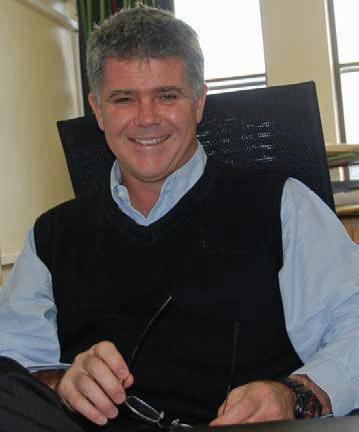 Professor Owen Skae
Professor Owen Skae
To support his view, Professor Skae and colleagues at Rhodes Business School crunched the numbers. They found that in the five years following the jobs summit, the government should have created around 1375 000 jobs. However, he concludes: “According to the data analysed [at Rhodes Business School], a net 135 000 jobs were created between June 2018 and September 2023.” This number represents 9.8 per cent of the target.
THE COVID-19 EXCUSE
While Professor Skae admits that COVID-19 certainly had an impact, he believes that “instead of it driving a renewed commitment, it seems that it has really given an excuse” for those responsible for delivering the promises to hide behind.
UNEMPLOYMENT HUMAN RIGHTS 9
IMAGES: GCIS, SUPPLIED
Women in New York protested, in 1857, against 16-hour workdays, insufferable working conditions and poor pay before going home to start the second shift. That could be the script for the rest of the world today, particularly in South Africa.
On average, in South Africa today, women earn 70 per cent of what men earn for the same job at the same level. Women are 42 per cent of the economically active population yet critically under-represented in the executive suites and the boardrooms. Surprisingly, women are well-represented in South Africa’s parliament, with 48 per cent of the members being women.
But this does not translate to gender transformation economically or even in employment in government in general.
While more than 60 per cent of national public servants are women, the most senior positions are inevitably held by men. This is consistent with what happens across the public and private sectors.
According to a 2021 study conducted by the Businesswomen’s Association of South Africa, women fi lled only 40 per cent of director roles at state-owned entities, 36.7 per cent of roles in the professional services industry, and only 26.9 per cent of director positions at JSE-listed entities.
Many women still perform the tasks of being the primary caregiver of children and ageing parents, even after a hard day at work.
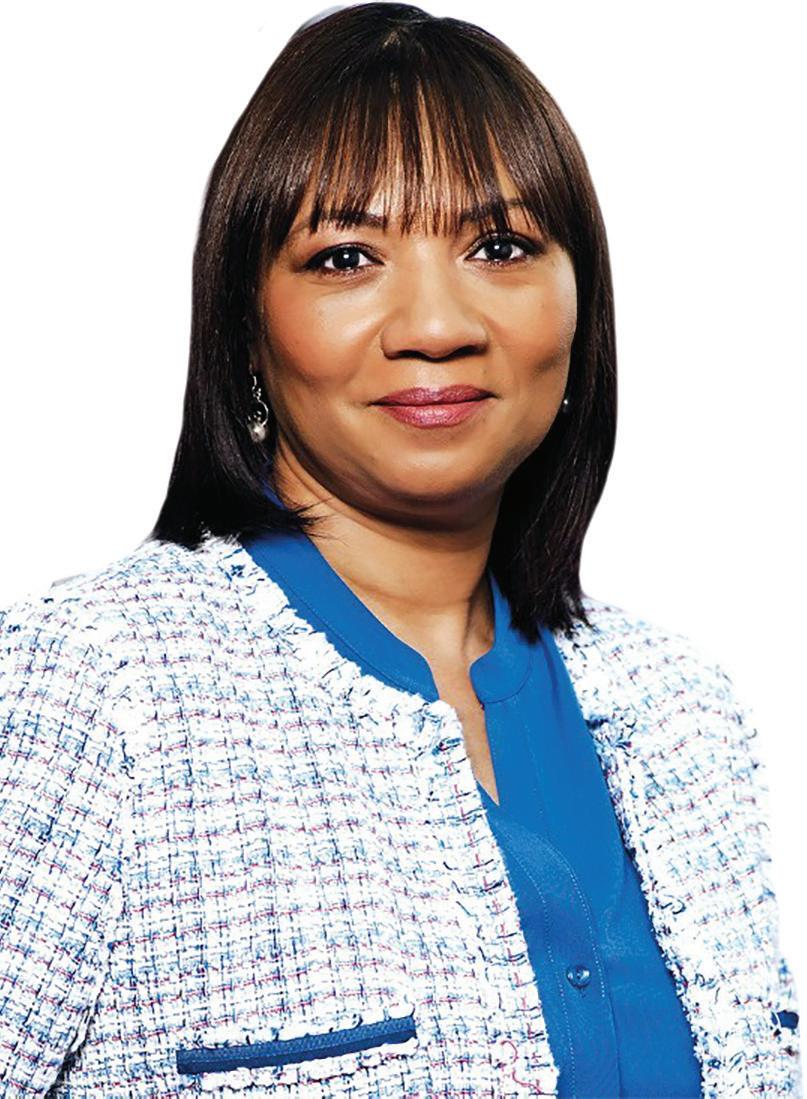


WHAT WILL IT TAKE?
BERTINA ENGELBRECHT, CEO of the Clicks Group, shares what is needed to realise gender parity in our lifetime
For many girls worldwide, education is not a right, but a privilege. It is estimated that 130 million girls are excluded from access to education globally.
The defi nition of progress is to move forward and onward towards a goal, and there has been some, albeit small, progress for women in the workplace. Some previously closed doors have opened since we became a democracy 30 years ago.
YOU CAN HELP INITIATE CHANGE
There is still so much to be done, but there are things you can do to make a difference in your workplace as far as gender parity is concerned.
You can request the CEO or board chairman to commit to gender parity at board level. Every board should have a clearly defi ned board diversity policy and target. This will also advance the company’s Black Economic Empowerment (BEE) performance.
You should get involved in your transformation committee. These committees need people with gravitas. I chair the transformation committee at Clicks Group. We use external trainers to provide us with the knowledge and understanding of the legislation. The trade union is included to ensure everyone is represented.
You can request your human resources executive to take your team through the talent and succession programme and explain how to access development opportunities for yourself, your team members or colleagues.
of opportunity is not enough. Unless we create an environment where everyone is guaranteed some minimum capabilities through some guarantee of minimum income, education and healthcare, we cannot say we have fair competition. When some people have to run a 100-metre race with sandbags on their legs, the fact that no one is allowed to have a head start does not make the race fair. Equality of opportunity is absolutely necessary but not suffi cient in building a genuinely fair and effi cient society.”
Other ways to help:
•D on’t be afraid to approach an internal or external leader and request formal or informal mentorship and then pay that forward.
• Formally request to be included in high-profi le projects or development programmes.
• Volunteer to get involved in cross-functional work or events, such as Heritage Day.
• Ask for feedback on a project or your participation in meetings, but be prepared for what you may not want to hear and then be ready to work on that.
• Develop your brand statement. This includes who you are, what you bring to the table in knowledge, skills and behavioural competencies, what projects or programmes refl ect your skills, examples of your leadership skills and the role you are aiming for.
• Pay attention to your mental, fi nancial and physical health.
THE SOUTH AFRICAN WOMEN IN LEADERSHIP CENSUS
DOWN LOAD
 Bertina Engelbrecht
Bertina Engelbrecht
Chinese author and economist Ha-Joon Chang, refl ecting on “The 23 Things they don’t tell you about Capitalism”, writes that: “Equality
MANY WOMEN STILL PERFORM THE TASKS OF BEING THE PRIMARY CAREGIVER OF CHILDREN AND AGEING PARENTS, EVEN AFTER A HARD DAY AT WORK.
GENDER PARITY 10 HUMAN RIGHTS IMAGE: SUPPLIED
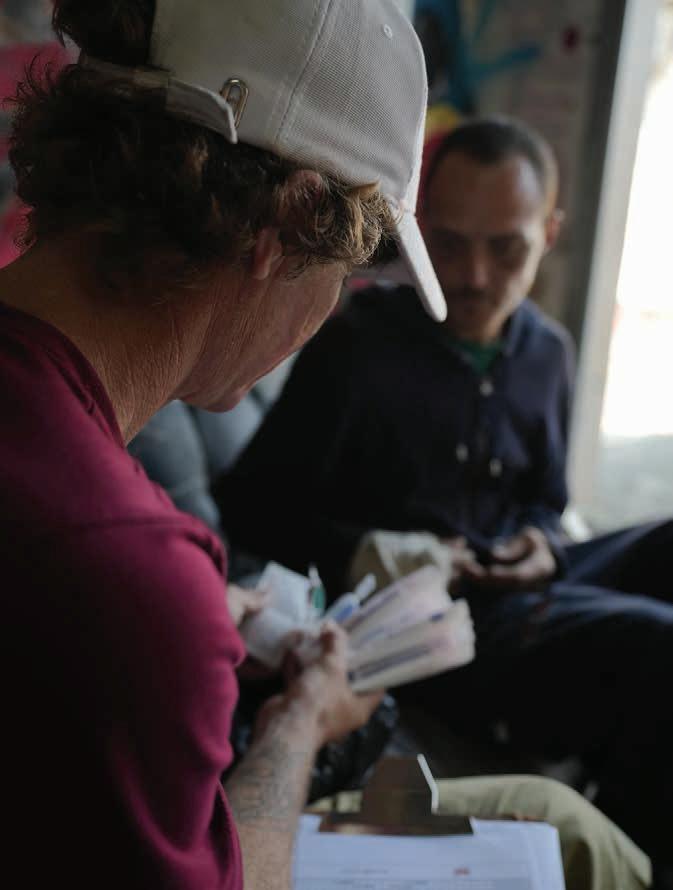
Berenice’s journey into heroin use was a desperate attempt to silence the pain and sadness stemming from a traumatic past. “I was sexually abused and experiencing difficulties in my family and home life,” shares the 37-year-old mother of three from Mitchell’s Plain.
Heroin became both a friend and an enemy, offering temporary confidence while simultaneously robbing her of a fulfilling life. “It numbed all my pain and sadness,” she says. Trapped in abusive relationships and the constant struggle for survival, on the darkest nights Berenice would crawl and hide, fearing for her safety. “It was really tough, I couldn’t be the mother I wanted to be, and my kids were suffering because of it.”

WHEN ENOUGH IS ENOUGH
Harm reduction and a rights-based approach support public health and gets lives back on track, writes Bongiwe Mhlongo, communications specialist at NACOSA, a networking organisation that partners with communities for better health in Southern Africa
The way out for Berenice was a harm reduction programme for people who use drugs. It is a holistic approach that recognises that people and communities need support at all levels for things to change. “We are not judged, they understand that it’s a process and know it’s a struggle. There’s always someone willing to listen and talk to when you need them.”
“What I like about the programme is that they never pressured us to get clean immediately.” Instead, Berenice was offered opioid substitution therapy, also known as methadone. “When you’re on your methadone, you wean yourself off, and eventually, you become clean.”
HELPING OTHERS
What makes Berenice’s story remarkable is her commitment to giving back. Now a peer field worker, she works with the homeless and others struggling with dependency. “I wanted to give back and I know I came from there, so I know there’s some way I could help somebody, even if it’s just one person.”
Her story shows how trauma from human rights violations can almost destroy a person’s life, but also how a rights-based approach can help turn lives around.
Harm reduction strategies reduce the harm associated with drug use to people and the community. NACOSA’s People Who Use Drugs programme works through TB HIV Care, an implementing organisation in Cape Town, offering harm reduction services and support, education, human rights advocates who document abuse and provide access to legal services, and a community-based approach that puts people first. The programme, funded by the Global Fund, also plays a critical public health role by reducing the transmission of HIV, TB and hepatitis. Operating in four urban centres across the country, NACOSA’s programme advocates for the expansion of harm reduction services and changes in policy and society to give hope to more people like Berenice.
Berenice’s story has a happy ending. She has been reunited with her children and is in a healthy relationship: “I’m happy today. I’m clean, I’m young, giving back to the people who are struggling with addiction and the homeless community. It’s amazing and I want to tell those out there who are struggling, ‘you know when it’s enough’.”


Despite multiple attempts at rehabilitation, the root cause of her struggles remained unaddressed. “I attended rehab programmes, went back home, and everything would be fine, but I would relapse over and over again because we never dealt with the trauma.”
A WAY OUT
Berenice’s role involves connecting with the homeless community, offering support and guiding individuals toward shelters and harm reduction support. Berenice believes in the importance of respecting the rights and dignity of every individual, regardless of their circumstances.


















“I kept trying because I knew the miracle was going to happen. I told myself: it’s either the miracle happens or drugs will kill me. But I didn’t want to die like that. I kept that hope alive in myself, although there were many times I didn’t see a way out.”




























“I would relapse over and over again because we never dealt with the trauma.”








For more information: www.nacosa.org.za












HUMAN RIGHTS 11 ADVERTORIAL NACOSA Images: Supplied
Berenice gives back to her community as a field worker.
NACOSA provides harm reduction services.
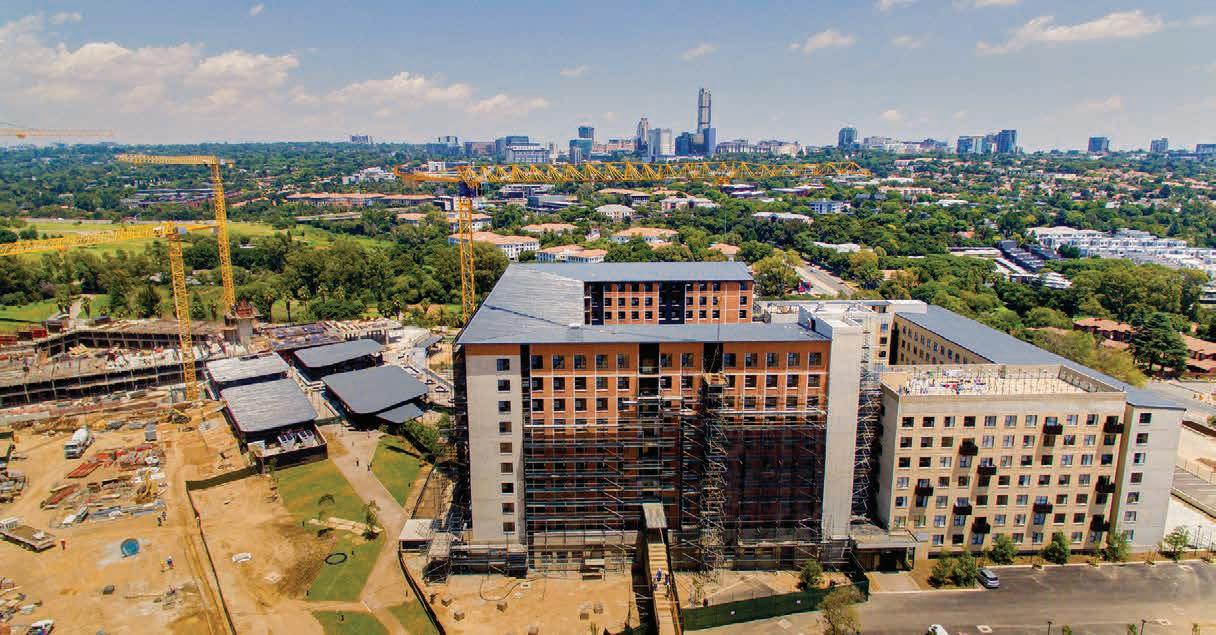
VISIONARY PROJECT LEGACY PAVES THE WAY TOWARDS URBAN PROSPERITY
In a move that underscores the imperative of urban densification and the creation of integrated neighbourhoods, Barlow Park emerges as a testament to the transformative vision of BARLOWORLD
The Barlow Park development is not just about building structures; it’s about laying the foundation for a future where every South African can lead a prosperous life rooted in the heart of well-located, empowered communities.
The historical connection between Barlow Park and Barloworld is profound, extending beyond the choice of name to the very essence of the land itself. Launched in 2017, this ambitious project is taking shape at 180 Katherine Street, Sandton, the historic site of Barloworld’s former headquarters, now morphing into the pioneering Barlow Park precinct. This piece of earth holds within it decades of history and evolution. Now, it is set to become a prime example of innovation and community development, heralding a new chapter in Barloworld’s legacy
A SYMBOLIC PLEDGE TO ENHANCE SOCIETY
With Barlow Park, Barloworld is not only constructing buildings, but also weaving the fabric of societal progress. This project represents a significant stride towards bridging the divide that often separates people from economic participation. It’s about creating a space where the distances that fragment our lives and communities are reduced significantly, fostering a more cohesive, integrated urban landscape.
Barlow Park is poised to become a mixed-use beacon, offering modern apartments, retail spaces, dining venues and educational facilities,
THIS PROJECT REPRESENTS A SIGNIFICANT STRIDE TOWARDS BRIDGING THE DIVIDE THAT OFTEN SEPARATES PEOPLE FROM ECONOMIC PARTICIPATION.
including a Curro school. Its strategic location near Sandton City and Innesfree Park ensures that it’s not just a place to live, but also a hub of convenience and accessibility. The project’s inclusive approach to housing aims to foster vibrant, integrated communities that embody Barloworld’s core values and ethics, thus living up to the name “Project Legacy.”
This initiative embodies the ethos of breaking through limits and striving for a brighter future for all. “Barlow Park is more than a development; it’s a commitment – a pledge to enhance the community it resides in, level the playing field and build a legacy of prosperity that extends beyond the confines of its physical structures,” says Group CEO of Barloworld Dominic Sewela.
A NEW WAY
On a recent tour, Barloworld board members experienced first-hand the scale and vision of this groundbreaking development. The development, which opened at the end of February 2024, challenges the conventional urban sprawl that has long plagued South Africa, contributing to inequality and stunted development.
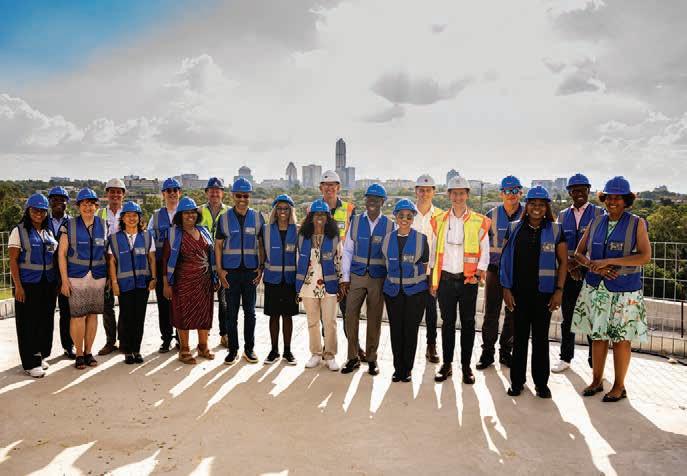
Barlow Park departs from traditional urban development models significantly, promoting inclusivity, accessibility and sustainability. By doing so, Barlow Park is setting new standards for housing and community projects, ensuring a brighter, more inclusive future for its residents.
Atterbury and Divercity Urban Property Group have been chosen to lead the development jointly. Alongside Barloworld, Atterbury, Divercity Property Group, Moolman Group and Twincity are also co-investors in the project.
The project intertwines with Barloworld’s storied 120-year legacy, honouring its past while paving the way for a better community future. Barloworld’s Project Legacy is shaping up to be more than a development; it’s a blueprint for the future of urban living in South Africa.


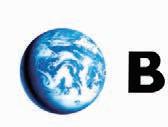
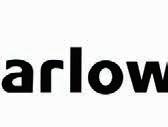
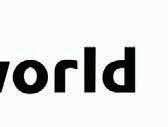
12 HUMAN RIGHTS
Supplied
Images:
BARLOWORLD For more information: +27 11 445 1000 groupmarcomms@barloworld.com www.barloworld.com Scan to go to the Barloworld website
ADVERTORIAL BARLOWORLD
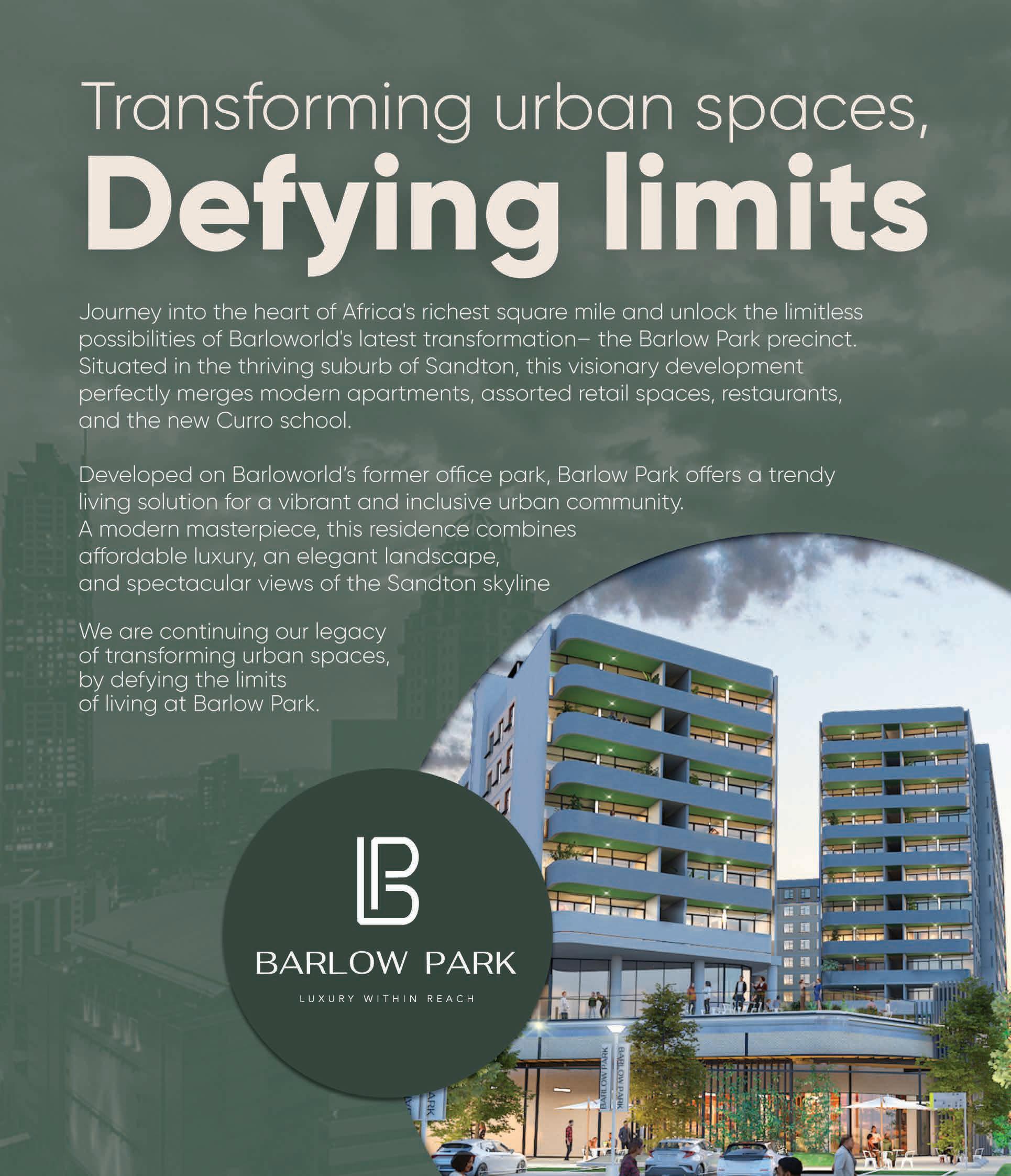
BUSINESS HAS A RESPONSIBILITY AND OPPORTUNITY TO ADVANCE HUMAN RIGHTS
Business must conduct ongoing human rights due diligence, writes RETHABILE MBOKODI, programme manager: UN Global Compact Network South Africa
Business has a responsibility to respect human rights and avoid complicity in human rights abuses, in accordance with the United Nations Guiding Principles on Business and Human Rights (UNGPs). Where business may have violated human rights, the Guiding Principles obligate them to remedy this.
Despite available guidance for business, benchmarks and analyses indicate low levels of commitment. For example, the 2023 Global Corporate Human Rights Benchmark indicates that almost half (46.2 per cent) of the largest companies in the world surveyed, failed to show evidence of identifying or mitigating human rights issues in their supply chains. The United Nations Development Programme’s 2022 Baseline Assessment on Business and Human Rights in Africa study highlights that Africa is behind other regions in efforts to implement the UNGPs and advance the business human rights agenda. Some of the key findings are:
5. Multinationals do not apply the same standards of respect for human rights to their subsidiaries as they do to their parent companies. South Africa is no exception to this trend. According to the South African Human Rights Commission, some multinational companies may endorse UNGPs, but do not necessarily intend to follow them.

BUSINESS SHOULD SUPPORT AND RESPECT HUMAN RIGHTS
Based on the above, it is clear business must increase its efforts to respect human rights. By embedding respect for human rights in its operations and throughout its value chains, business can also advance the 2030 Agenda for Sustainable Development.
The UNGPs stipulate that even if the state fails to protect human rights, business is still obligated to respect and uphold them.
Failure to do so may expose business to risks such as loss of social licence to operate, reputational damage and regulatory scrutiny.
diligence. For example, the European Union (EU) has proposed the Corporate Sustainability Due Diligence Directive, which aims to enhance the protection of the environment and human rights in the EU and globally.
2. Technology and human rights . While technology, such as artificial intelligence, automation and robotics, can be an enabler for advancing human rights, there are concerns that it has the potential to create mass unemployment and worsen inequality. Business must ensure that technology does not exacerbate human right/s impacts.
3.Increased focus on labour rights issues in global supply chains. Due to labour exploitation (poverty, wages, discrimination and violence) in global supply chains, more institutions, such as the Business & Human Rights Resources Centre, are closely monitoring business performance in this area. The rapidly changing landscape will affect South African business and business must act swiftly to advance human rights.
The United Nations Global Compact Network South Africa urges business to increase its efforts by accelerating the implementation of the UNGPs in their organisations.
Business must implement the following:
1. There is little awareness of UNGPs among businesses.
2. SMMEs’ participation in human rights is limited due to lack of knowledge and resources.
3. The purpose of human rights policies is not well understood; it is generally a “tick-box” exercise.
4.Business fails to conduct human rights due diligence intended to assist it with knowing and respecting human rights.
CHANGING HUMAN RIGHTS LANDSCAPE AND EMERGING BIG ISSUES
To ensure sustainability, business must keep abreast of the swiftly changing human rights global landscape. The emerging big issues are:
1. The rise in calls for mandatory requirements. Due to the slow pace of business in implementing the UNGPs, there is a growing global movement to legally require companies to conduct human rights and environmental due
TO ENSURE SUSTAINABILITY, BUSINESS MUST KEEP ABREAST OF THE SWIFTLY CHANGING HUMAN RIGHTS GLOBAL LANDSCAPE.
1. Policy commitment: express its commitment to respecting internationally recognised human rights and embedding them through operations.
2.Human rights due diligence: conduct due diligence aimed at preventing harm to people.
3.Remedy and grievance mechanisms: establish a remedy and grievance mechanism where business has caused or contributed to a negative impact.
Through bold leadership, commitment and actions we can achieve the needed transformative change.
The UN Global Compact Network South Africa offers guidance, tools and support to business on its due diligence journey.
14 HUMAN RIGHTS SPONSORED CONTENT UNITED NATIONS GLOBAL COMPACT NETWORK SOUTH AFRICA Images: Supplied
Rethabile Mbokodi
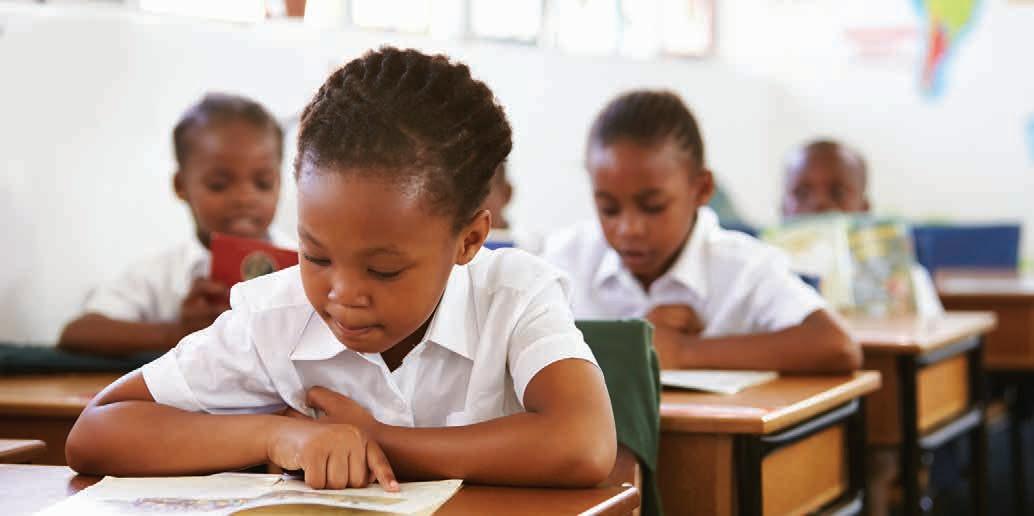
REKINDLING LITERACY FOR CURIOSITY AND SOCIAL JUSTICE CONSCIENTISATION
SANELE KA NTSHINGANA and NOKUTHULA DAWETI share why addressing issues around literacy can change the trajectory of life for many vulnerable communities
Various forms of literacy have, undeniably, played a pivotal role in the development of societies across the globe. In Africa, as in many other regions, people historically employed diverse literacies for pleasure, connection, curiosity and creativity long before the era of colonialism. The multitude of sensorial registers through which we engage with the world, encompassing the interpretation and creation of symbols, various art forms, nature and sound, constitutes the inherent literacies we possess. Conversely, these very literacies have been suppressed, reshaped and targeted for destruction by colonial powers imposing Western paradigms of interpreting and expressing the world, thereby establishing hierarchies and standardising tools for engagement. Literacies, therefore, especially in Africa, have been and continue to be arenas of imagination, joy, contestation and resistance.
FIRE WITH THE PEN
Ngugi wa Thiong’o, the eminent African literary figure, extensively elaborates on this in his book, Decolonizing the Mind, illustrating how in Kenya, European literacies were imposed within power domains, such as schools, to overshadow pre-existing indigenous practices and innovations. Similarly, in South
Africa, activists have resisted colonialism by mobilising various forms of literacy. In the late 19th century, after numerous conflicts with British settler colonialism, Xhosa-speaking intellectual Isaac Wauchope famously declared, ”dubula ngosiba” (fire with your pen), signalling a shift from physical confrontation to intellectual battle, using pens and papers for the war of ideas through reading and writing All of this underscores the crucial role literacies play in societal development or underdevelopment, with oppressed communities leading the way in recognising literature’s potent role in liberation, both explicit and implicit.
Therefore, it is not coincidental that reports on reading and writing in South Africa reveal low levels of reading for meaning. The 2021 Progress in Reading Literacy Study (PIRLS) disclosed that a staggering 81 per cent of South African Grade 4 children cannot read for meaning. Many of these children, predominantly black, attend under-resourced township and rural schools – a consequence of apartheid’s underfunding of schools, leading to what Steve Biko termed “inferior education.” Thirty years into democracy, the resource disparity between affluent and under-resourced schools remains glaring, cautioning against clinical approaches to literacy problems devoid of contextual understanding.
THE POWER OF READING SHARED
As activists operating as the Makhanda Black Kollective, we were moved deeply by this reality. In 2018, we initiated the Afrocentric Walking Library to bridge the gap between formal and informal learning spaces. Collecting hundreds of books, predominantly in isiXhosa and English by African authors, we aimed to engage young people aged 6 to 15 years outside the confines of formal education. Our objective was to read stories dynamically with them, fostering enjoyment and re-introducing cultures of collective relationality over excessive competition.
Our efforts successfully sparked curiosity among the youth, leading to the lending of one book per week. Despite minimal reading at home, the joy of taking a book home was evident, with books appreciated as tools for fun and debate rather than prescribed texts for academic purposes. Subsequently, discussions on power, wealth, inferiority and inequality unfolded in simplistic ways tapping into song and storytelling without fixating on the number of words read per minute. This approach allowed us to introduce diverse histories and historical figures often overlooked or erased in South Africa’s emancipation narrative, such as Nontsizi Mgqwetho, Charlotte Maxeke, Steven Bantu Biko and Robert Sobukwe, fostering generative intergenerational conversations.
The responses from young people have been varied and intriguing. Notably, one co-conspirator from Makhanda Black Kollective shared a transformative shift in perceiving the school curriculum, realising the potential of literature to equip individuals with tools for critical questioning. He recounted that one day he got in trouble for asking a teacher a critical question concerning a certain section in history that the teacher couldn’t address adequately. This underscores the liberating power of socially relevant education that builds upon students’ literacy, sparking curiosity and social justice conscientisation.


EDUCATION HUMAN RIGHTS 15 IMAGE: ISTOCK.COM/ MONKEYBUSINESSIMAGES
YEARS INTO DEMOCRACY, THE RESOURCE DISPARITY BETWEEN AFFLUENT AND UNDER-RESOURCED SCHOOLS REMAINS GLARING, CAUTIONING AGAINST CLINICAL APPROACHES TO LITERACY PROBLEMS DEVOID OF CONTEXTUAL UNDERSTANDING.
THIRTY
RE AD
2021 STUDY
PIRLS

WHY SOUTH AFRICA’S PUBLIC HEALTHCARE SYSTEM IS FAILING
Public healthcare in South Africa, while not yet on life support, is in danger of collapse if not urgently nursed back to life, writes CHARMAIN NAIDOO
South Africa’s Constitution binds government to the progressive realisation of access to healthcare. However, the necessary stewardship that should provide a comprehensible vision and programme of how to achieve that is absent. This is according to Professor Sharon Fonn, from the School of Public Health at Wits University, whose work focuses on health systems.
“The values that should guide government and be instilled and reinforced at every level in the health system, are missing,”she explains.
She adds that while there are sufficient committed and competent people in South Africa to do the work well, they are often not appointed. She calls for the professionalisation of the civil service to insulate the various bodies and processes from government and commercial entities, allowing a level of independence no matter which political party is in power.
THE RIGHT TO HEALTHCARE UNMET
“There are big and obvious human rights abuses, such as Life Esidimeni (the death of 144 mental healthcare patients and the exposure of 1 418 others to torture, trauma and poor health outcomes). But the right to health extends to the everyday experience
of ordinary people. Stockouts where people can’t get their drugs, hospital patients who don’t get food because it has been diverted, or patients not being treated with dignity, respect and privacy, indicate that their right to care is not being met. Building a functional, responsive, well-managed healthcare system is at the core of realising this right as articulated in the Constitution,” Professor Fonn adds.
Sasha Stevenson, executive director at human rights organisation SECTION27, says the quality of healthcare services and the state of healthcare facilities varies dramatically across and within provinces.
“Some facilities and departments are centres of excellence. For example, Rahima Moosa Mother and Child Hospital in Coronationville, Johannesburg, has excellent clinical leadership and provides impressive paediatric and maternal care despite challenges.
“But broadly, the public healthcare system is poorly funded and overstretched. We have seen a decrease in the health budget, which in real terms, factoring in inflation, means there has been a decrease in the per person expenditure on health.” This, she says, means necessary services – and the quality thereof – are not provided.
“WE HAVE SEEN A DECREASE IN THE HEALTH BUDGET, WHICH IN REAL TERMS, FACTORING IN INFLATION, MEANS THERE HAS BEEN A DECREASE IN THE PER PERSON EXPENDITURE ON HEALTH.” – SASHA STEVENSON
CORRUPTION AND POOR MANAGEMENT
In addition, Stevenson says, the South African health system is particularly vulnerable to corruption. For example, the R1-billion Tembisa Hospital tender scandal uncovered by Gauteng health department whistle-blower Babita Deokaran and the R150-million Digital Vibes pandemic communications service tender scam, involving the then-minister of health, Dr Zweli Mkhize.
Another issue is ineffective leadership and management across the health system. “Leadership, governance and management are a huge component of what makes health facilities work. Setting up processes and systems, staff management and ensuring adequate resources makes a huge difference in the quality of health services and the health facility,” Stevenson concludes.
HEALTH WATCHDOGS
Watchdog organisations ensure there is some oversight of the South African healthcare landscape.
Ritshidze (“Saving Our Lives” in TshiVenda) was developed by activists and people living with HIV to hold the government and aid agencies accountable to improve overall HIV and TB service delivery. Partner organisations include the Treatment Action Campaign, the National Association of People Living with HIV, Positive Action Campaign, Positive Women’s Network and the South African Network of Religious Leaders Living with and Affected by HIV/AIDS – in alliance with the Health Global Access Project, the Foundation for AIDS Research and Georgetown University’s O’Neill Institute for National and Global Health Law.
The Stop Stockouts Project monitors the availability of essential primary healthcare medicines and children’s vaccines to assist those whose health is threatened by chronic drug shortages. It is a consortium of six civil society organisations, initiated by SECTION27, Médecins Sans Frontières, the Rural Health Advocacy Project, Rural Health Doctors Association of Southern Africa, the Southern African HIV Clinician Society and the Treatment Action Campaign.
16 HUMAN RIGHTS HEALTH
IMAGE: ISTOCK.COM/ UKICARAS
For the past 25 years, Community Media Trust has been at the forefront of promoting individual human rights and thriving communities.
Since its inception, Community Media Trust has focused on media production and in-person communication services centred on health and human rights. Its community-based teams successfully implement evidence-based behaviour change programmes, effecting change through strengthening community responses to challenges related to health and wellbeing. An important part of its work is ensuring linkages to health and social services, supporting thousands of people across South Africa.
Community Media Trust, born during a critical period in South Africa’s healthcare history, emerged as a pivotal force in HIV/ AIDS advocacy. Its journey began with documenting the Treatment Action Campaign’s fight for accessible antiretroviral therapy. Through treatment literacy initiatives, it has empowered individuals with accurate information, creating materials in multiple languages for training and public dissemination.
COMMUNICATION PROGRAMMES ADDRESS COMPREHENSIVE HEALTH ISSUES
PROMOTING INDIVIDUAL HUMAN RIGHTS AND THRIVING COMMUNITIES
Human Rights Month is an opportunity to reflect on the ongoing work needed to uphold and protect human rights for all individuals. It encourages unity, action and solidarity in pursuing a more equitable and just society, writes COMMUNITY MEDIA TRUST
 Lucilla Blankenberg, co-CEO
Lucilla Blankenberg, co-CEO
While its trusted Siyayinqoba brand remains true to its roots and continues to focus on HIV, the organisation has expanded to include a comprehensive range of topics beyond HIV, including nutrition, maternal and child health, breastfeeding, gender-based violence, teenage pregnancy and COVID-19 vaccinations.
Community Media Trust has not only executed in-person communication programmes, but also carried out impactful mass media campaigns across various media platforms, such as television, radio, digital and out-of-home media. Through a wide range of formats, including award-winning prime-time television dramas and documentaries, its messages have reached millions of people. The media team at Community Media Trust is experienced and provides end-to-end services for TV, radio, digital and outdoor media. Their approach is human-centred and collaborative, which ensures that they create solutions that make a real difference to people’s lives.
Effective communication is fundamental in South Africa’s mission to uphold and protect
human rights. Through thoughtfully chosen channels tailored to meet people where they are, communication becomes a powerful force for change and empowerment. By sharing information, narratives and testimonies, we can shine a light on systemic disparities and potential solutions, sparking awareness and driving collective action to address areas where human rights have been infringed. Through creating mechanisms for the exchange of information, we can foster empathy and understanding across diverse communities, bridging gaps and nurturing mutual respect and solidarity.
CHANGE CHAMPIONS







Media Trust is proud of its Section 18A status, which reflects its dedication to uplifting communities and championing meaningful change. With an unyielding commitment to impactful communication projects, it has forged a global reputation as a trusted source in the behavioural change and social impact communications space.
As we mark Human Rights Month and beyond, Community Media Trust remains fi rm in its commitment to using the transformative power of communication to contribute to shaping a fairer, more equitable and rightsrespecting world.











Community Media Trust takes pride in the work done to advance human rights in South Africa. The Organisation’s recently celebrated 25 milestone anniversary is a testament to its vibrant and dynamic approach, which has propelled it into becoming a leading nonprofit organisation. A level 2 B-BBEE compliant company, Community

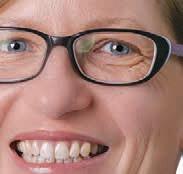



 Debbie van Zyl, co-CEO
Debbie van Zyl, co-CEO








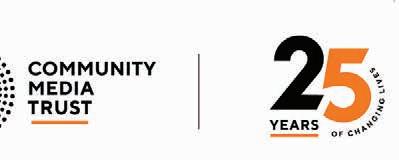
HUMAN RIGHTS 17 ADVERTORIAL COMMUNITY MEDIA TRUST Images: Supplied
Scan to go directly to the Community Media Trust website For more information: lucilla@cmt.org.za debbie@cmt.org.za www.cmt.org.za
COMMUNITY MEDIATRUST
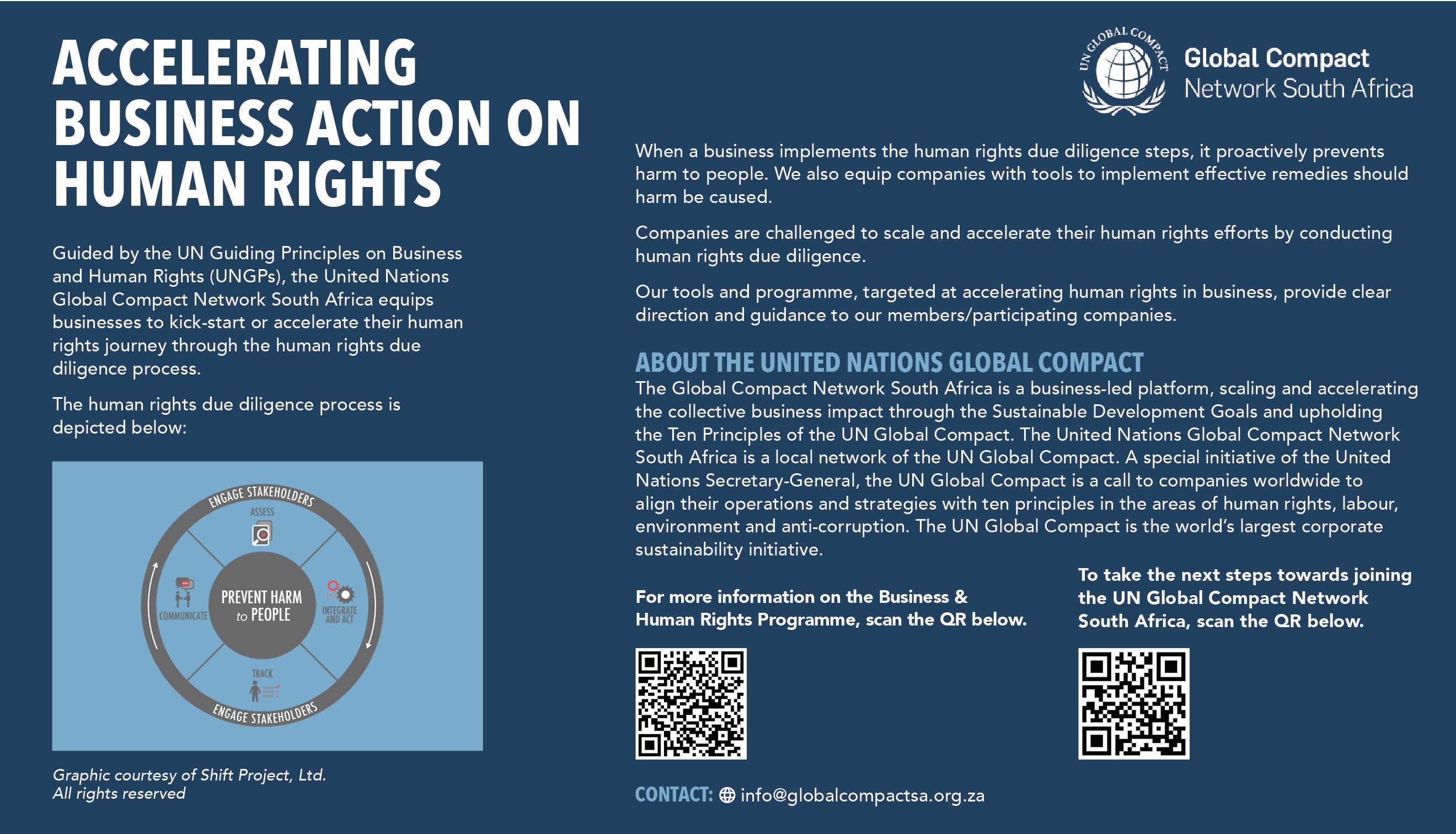
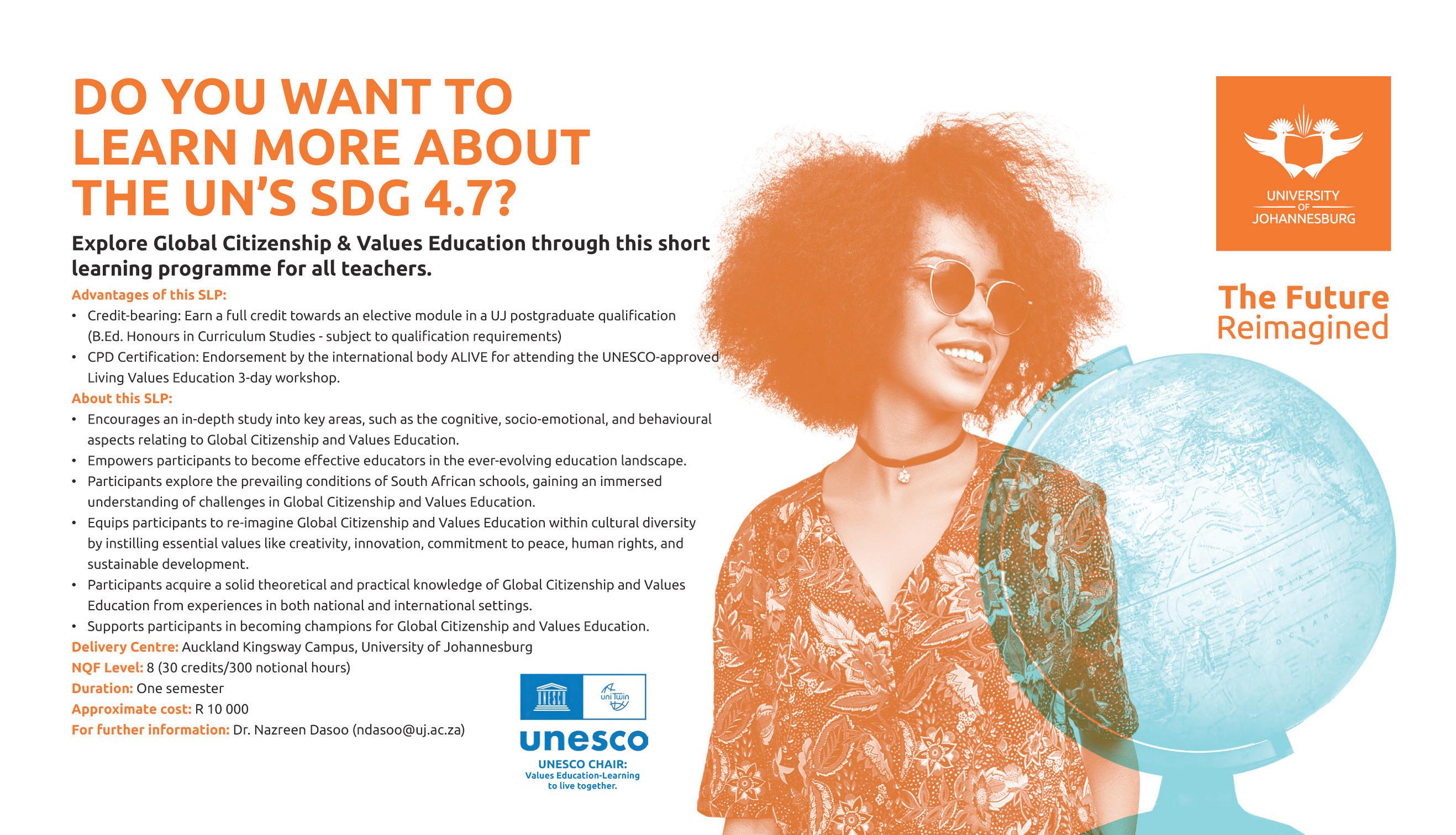
CLIMATE CHANGE AMONG THE TOP THREE CONCERNS FOR SOUTH AFRICANS
A recent survey has revealed South Africans’ attitudes and behaviours towards climate change, an imminentclimate crisis and taking action to make a difference for the betterment of the environment.
By TIMOTHY
THOMAS, country manager at Epson South Africa
After poverty (68.4 per cent) and the rising prices of goods and services (64.2 per cent), the third most pressing concern facing South Africans, according to Epson’s latest Climate Barometer survey, is climate change, with 58 per cent of respondents citing climate concerns as one of the biggest issues worldwide. The predominant sentiment among South Africans regarding climate change is one of fear, with 36.7 per cent expressing fearfulness while a third expressed anxiety.
Faced with stunted economic growth, South Africans’ main concerns centred on issues such as poverty and inflation for the second consecutive year. The fact that climate change remains a major concern in our market tells of a growing environmental awareness among South Africans
With perceptions of those born after the first COP conference in 1995 explored in greater depth in the 2023 Barometer, statistics revealed an interesting discrepancy between people aged 29 and under and other generations. Gen COP, for instance, were less likely to cite climate change as one of the current biggest issues globally (55.6 per cent) than those aged 30 and over (58.9 per cent). Those in the 55+ age group were the most likely (74.2 per cent).
Gen COP are also notably more optimistic, with 71.7 per cent believing in averting a climate crisis in their lifetime compared to 59.6 per cent of those aged 30 and over. The overall proportion of South Africans who share this optimism has risen to 62.5 per cent.
There is a promising trend of increased awareness and action in South Africa to addressing the looming climate emergency.
IT’S HEARTENING TO SEE SOUTH AFRICANS ADOPTING MORE ENVIRONMENTALLY CONSCIOUS PRACTICES, ADVOCATING FOR CHANGE AND STEPPING UP TO MAKE A MEANINGFUL DIFFERENCE.
EDUCATION AND PUBLIC AWARENESS
The ENVIRONMENTAL EDUCATION ANDPUBLICAWARENESS NETWORK was launched in early December 2023 to foster collaborationand networking between environmental educationorganisations
In October 2022, a project was initiated to explore ways to increase environmental education and public awareness in eThekwini. The project is part of the Bremen West to KwaMashu Partnership, managed by eThekwini Municipality and Green Corridors, with the German City of Bremen.
“There is a need to upskill and empower the eThekwini citizenry about socio-environmental issues so people can make better choices and support advocacy and activism for a safer, more just region, making them more resilient to growing environmental threats,” explains Luci Coelho, one of three environmentalists who helped guide the network into existence.
Professor Catherine Sutherland from the School of Built Environment and Development Studies at the University of KwaZulu-Natal says research revealed that the biggest barrier to an improved environment remained linked to issues of poverty and lack of access to services.
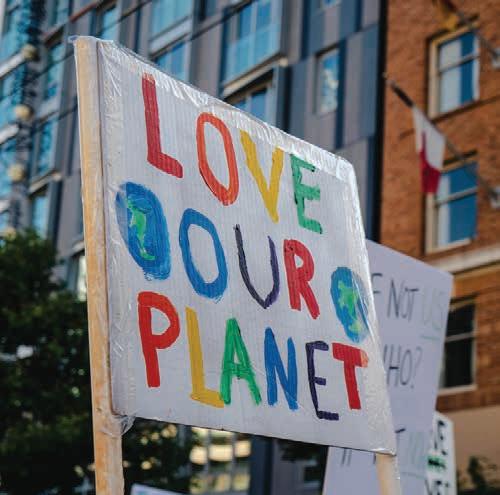
Many South Africans recognise their role and responsibility in making a positive impact both in their personal lives and within their social and professional circles.
It’s heartening to see South Africans adopting more environmentally conscious practices, advocating for change and stepping up to make a meaningful difference.
The 2023 survey reveals that 60 per cent of South African respondents anticipate local businesses and companies to invest more in environmental technologies, and nearly 55 per cent believe that companies should prioritise efforts to improve recycling and the reuse of products.
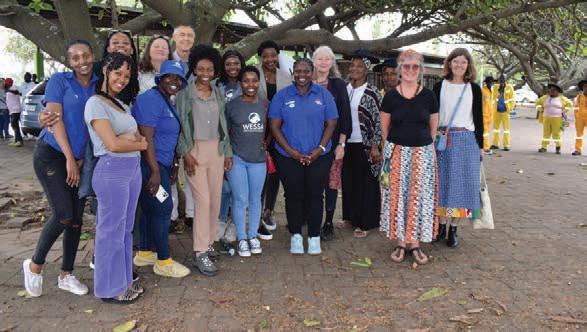
“Environmental education and public awareness need to make explicit the links between how we live, where we live and what needs changing in the face of growing environmental degradation,” explains Coelho.
The Environmental Education and Public Awareness Network (EEPAN) plans to facilitate sector events and collaboration with other networks and enable member accessibility to each other and external networks or agencies working in the field. It aims to promote knowledge- andresource-sharingand encourage advocacy on policy and legislation issues, and raise funds to enable this work.
CLIMATE CHANGE HUMAN RIGHTS 19
IMAGE:
IMAGE: EPSON IMAGE: EEPAN
The EEPAN interim co-ordinating committee with Professor Catherine Sutherland (on the right) at the network’s launch at Green Corridors’ Green Hub.
EEPAN
SOUTH AFRICA’S FIGHT AGAINST CORRUPTION IS GOING NOWHERE

South Africa is failing in its fight against corruption. The reasons for this vary from lack of accountability from the political elite to failure by government to drive a strong, decisive anti-corruption strategy and agenda. By
MOEPENG
TALANE
, a senior writer and editor for Corruption Watch
The period between the end of the year – particularly International Anti-Corruption Day (IACD) on 9 December – and the end of January when the global Corruption Perceptions Index (CPI) is released by watchdog Transparency International, is interesting for those in civil society. The two events mark the contrast between the narrow and rhetorical narrative of politicians presenting their view on corruption and the reality of entrenched corruption as displayed in the index.
For the most part, the Presidency appears to treat government’s official IACD commemoration as a diplomatic formality that requires an appearance and less like an opportunity to correct the anti-corruption failures that crop up weeks later in the CPI. For instance, in the last five years of the current administration, the narrative has been that the State Capture Commission’s work will benefit government tremendously as it will help strengthen its institutions – its recommendations bolstering the realignment of anti-corruption apparatus that got lost in the advancement of state capture. The speeches mostly overlook the urgent need to deal decisively and comprehensively with corruption to prevent the collapse of the public sector and the institutions underpinning it.
A PRACTICAL EXAMPLE
At last year’s IACD commemoration, Deputy President Paul Mashatile told delegates that his government was committed to holding the corrupt accountable. He cited government’s pledge to the UN Convention Against Corruption since its ratification 20 years ago, and even invoked the memory of Nelson Mandela and his ideals for a democratic South Africa.
However, Mashatile did not deliver a realistic representation of corruption in South Africa and the actual evidence of such accountability. To do that, he would have to unpack the relevant statistics of arrests, prosecutions and convictions. These resonate with the ordinary South African more than promises. For many tainted government leaders, whose efforts Mashatile praises, the difference between facing accountability and not is their proximity to the political protection that has seen not even a single cabinet minister implicated in state capture leaving their post.
LACK OF ACCOUNTABILITY
For organisations such as Corruption Watch, which straddles the social justice and anti-corruption agendas of civil society, what matters is the resonance on the ground with the hardships brought on by corruption –one of which is the lack of accountability among the political elite, the reality that proximity to power means impunity.
It is a hardship that has played a significant role in the now rampant nature of petty corruption, as ordinary South Africans question why they should avoid paying bribes and kickbacks if they see it benefit so many in leadership positions. The escalating rate of territorial mafia-style organised crime across different sectors is evidence of this growing culture of lawlessness.
A BLOW TO PUBLIC CONFIDENCE
Out of the public perceptions of government’s anti-corruption efforts – which unfortunately overlook the impunity of several political
leaders implicated in varying irregularities – we can somewhat measure the level of public confidence in its institutions. The reality is that corruption is thriving and public confidence is dwindling because we see the headlines of corruption discovered in state organs, but nothing on the individuals who should be held accountable.
If there had been no interference with the independence of important state institutions, we, perhaps, could be celebrating improved perceptions of corruption. However, the latest CPI, released on 30 January 2024, paints a bleak picture of our failures in dealing with corruption. South Africa’s score has declined to 41, its lowest in over a decade, owing to “the failure of law enforcement agencies to bring many of the corrupt to account and to strengthen the rule of law and channels of justice” as Corruption Watch notes in a press statement.
From a social justice perspective, civil society’s work involves educating the masses on their rights to the delivery of basic services without pause or interference. When acts of corruption and abuse of political power intercept such delivery, the protection of the very poor in our society is not guaranteed, despite the assurances of the Constitution.

THE ESCALATING RATE OF TERRITORIAL MAFIA-STYLE ORGANISED CRIME ACROSS DIFFERENT SECTORS IS EVIDENCE OF THIS GROWING CULTURE OF LAWLESSNESS.
20 HUMAN RIGHTS CORRUPTION WATCH IMAGE: ISTOCK.COM/ ATSTOCK PRODUCTIONS
WATCH
CORRUPTION PERCEPTIONS INDEX
GLOBAL
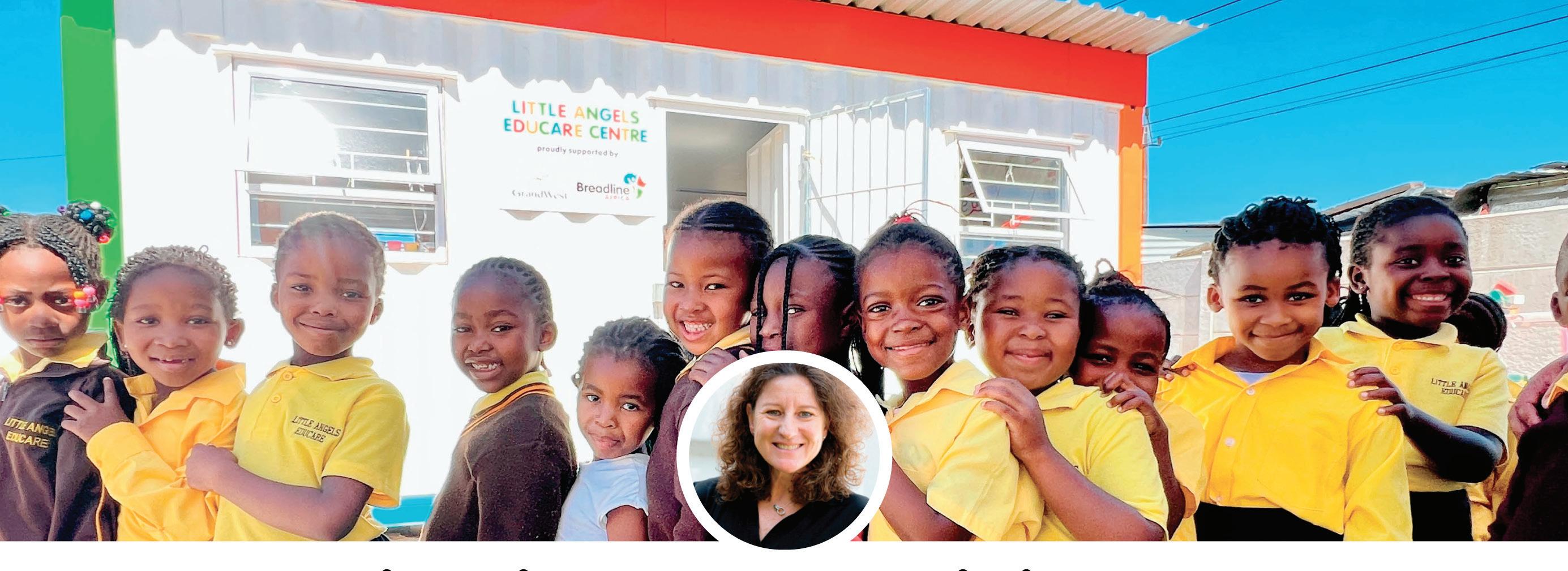
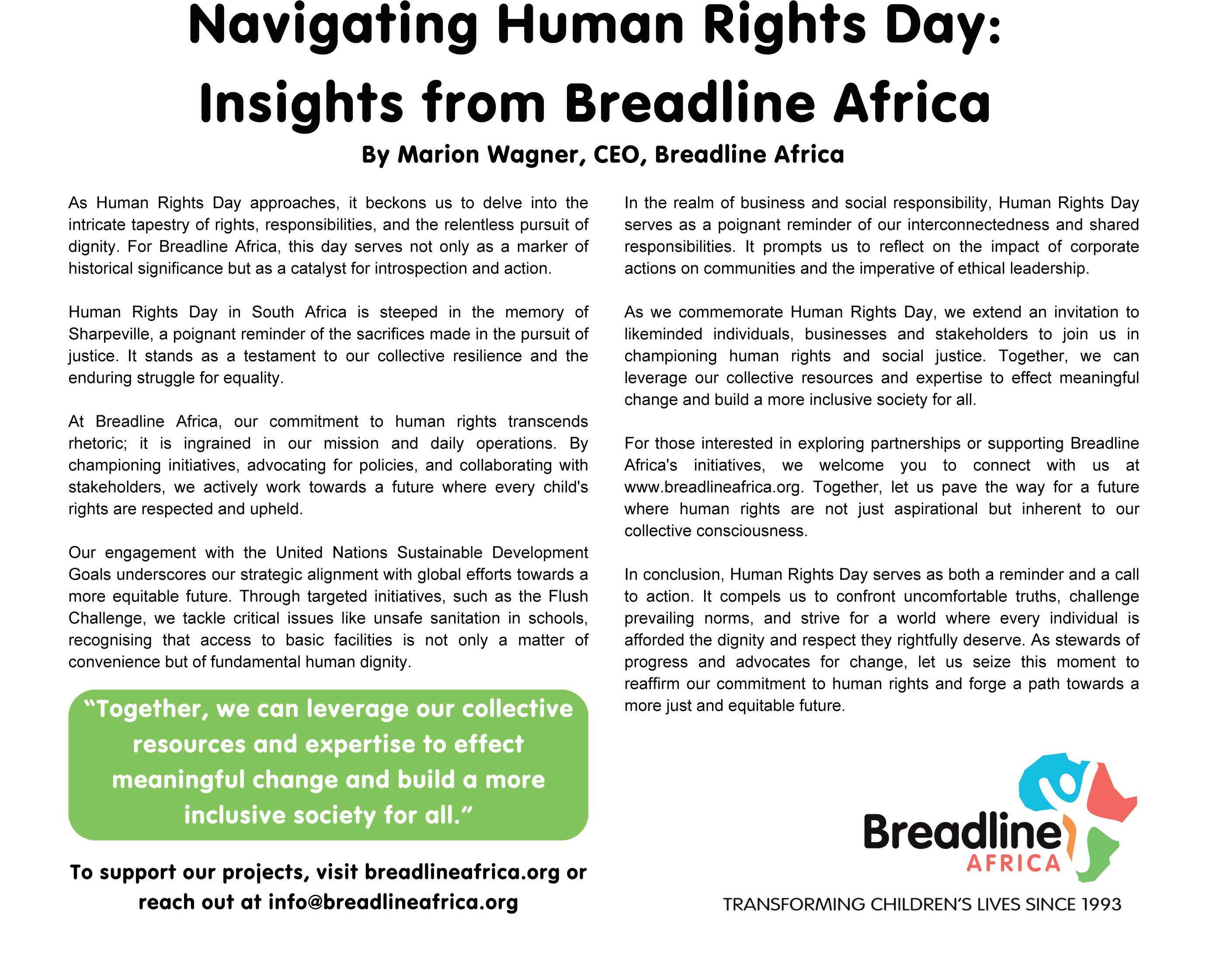
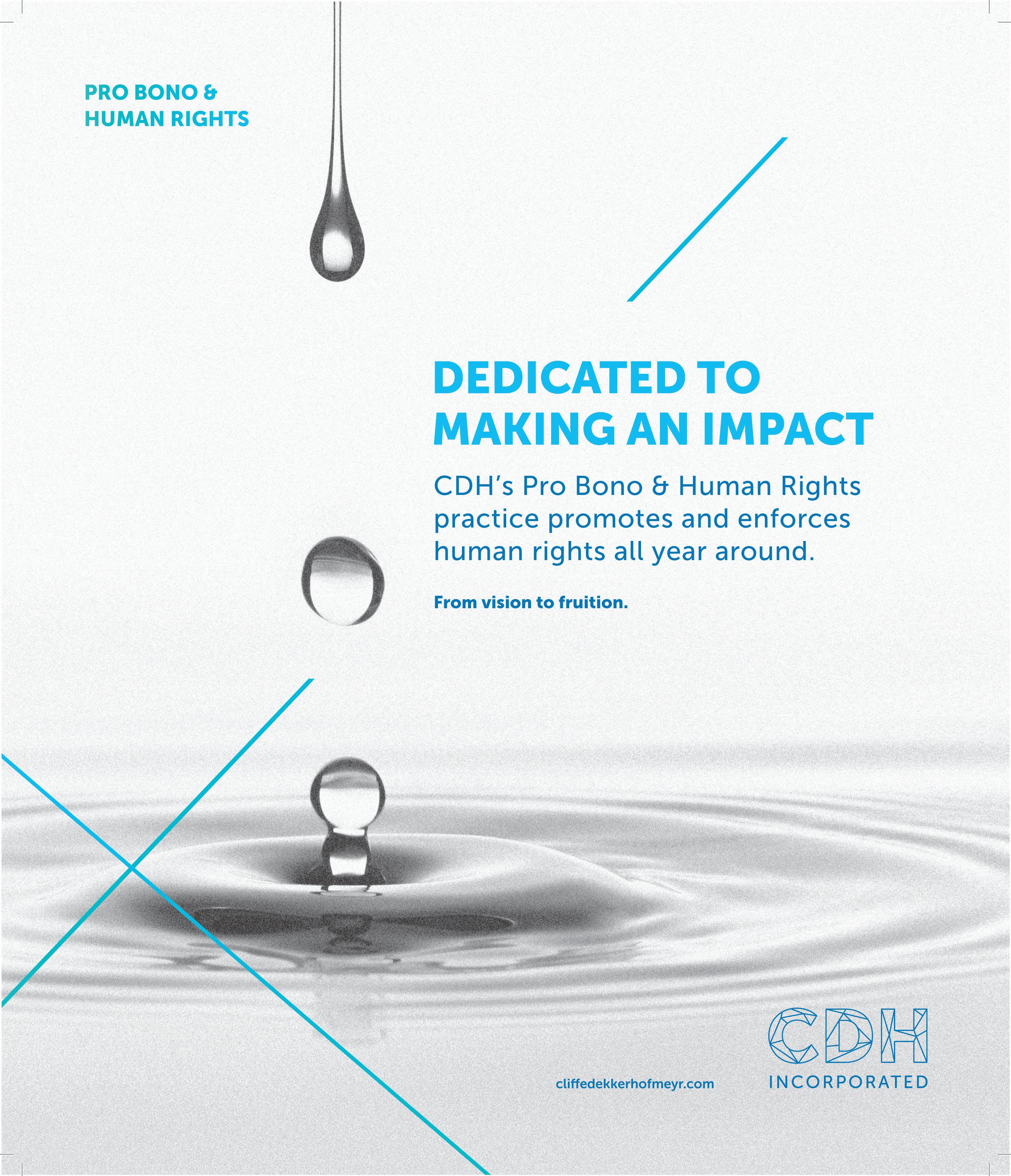















































































































 Pregs Govender
Precious Setati
Amonge Sinxto
Pregs Govender
Precious Setati
Amonge Sinxto













 Elgene Roos
Elgene Roos










































































































 Professor Owen Skae
Professor Owen Skae

 Bertina Engelbrecht
Bertina Engelbrecht

























































 Lucilla Blankenberg, co-CEO
Lucilla Blankenberg, co-CEO

























